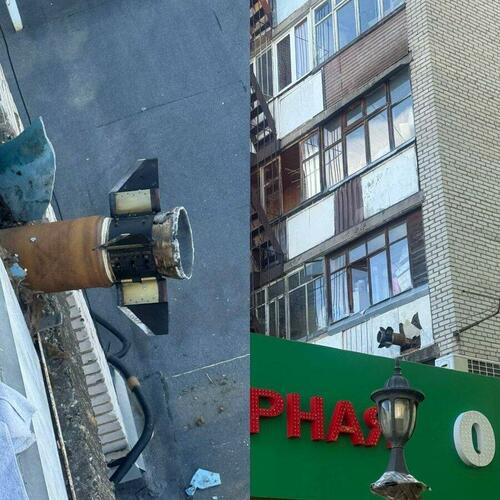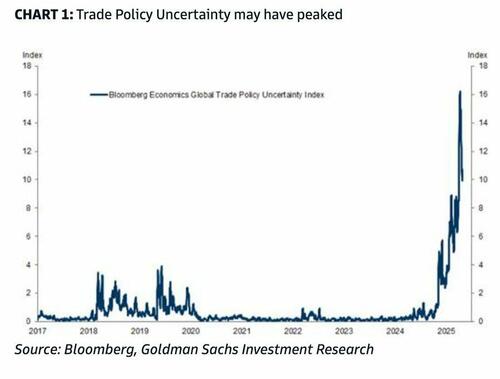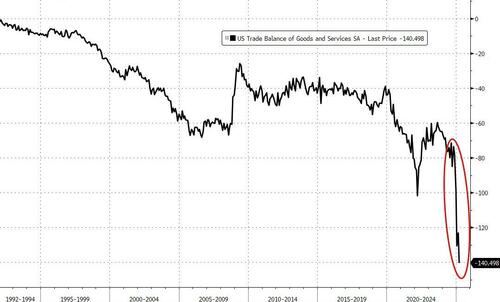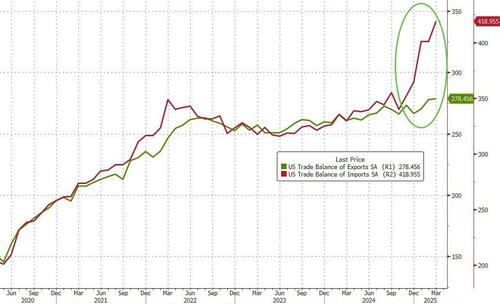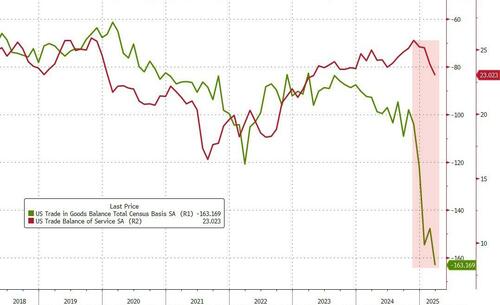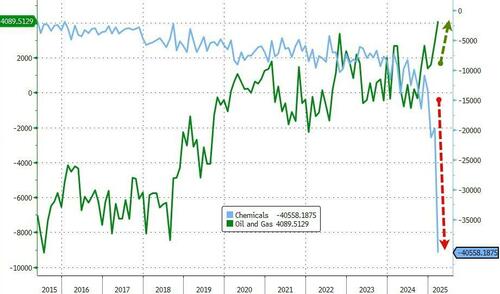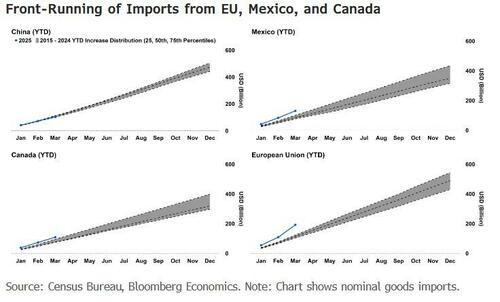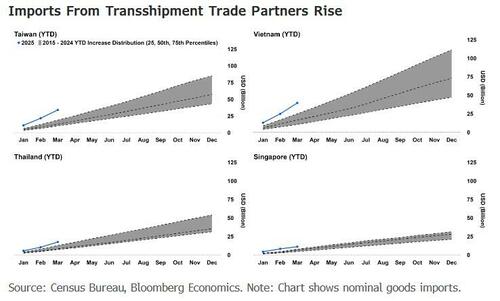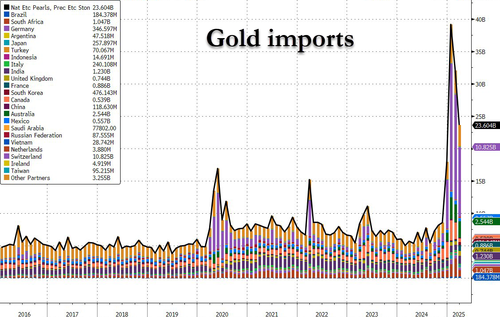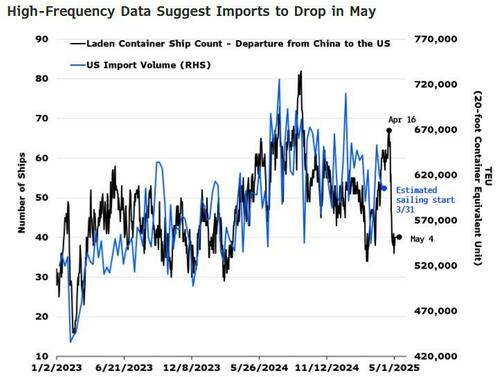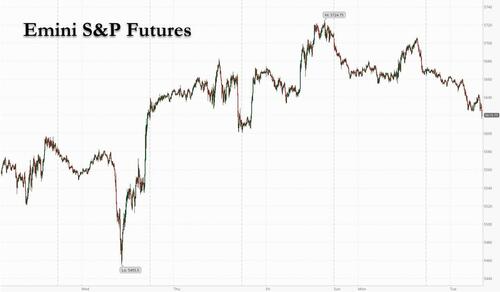The Eucharist is "the source and summit of the Christian life."
Distinction Matter - Subscribed Feeds
-
Site: RT - News
The Houthi militia based in the country has “capitulated” and does not “want to fight anymore,” the US president has claimed
Washington will immediately halt airstrikes on Yemen, US President Donald Trump announced on Tuesday. He made the statement while speaking at the White House alongside Canadian Prime Minister Mark Carney.
The order comes after weeks of US-led attacks on Yemen targeting the Houthi militant group, which has “capitulated” and pledged to stop attacks on commercial maritime traffic in the region.
The US president said the Houthi group has told Washington it does not “want to fight anymore.”
“We will honor that and we will stop the bombings. They have capitulated,” Trump stated.
The main goal of the bombing campaign against the Houthis, in which the US and UK took part, was to stop the group from “blowing up ships,” according to Trump.
US Secretary of State Marco Rubio added, “This was always a freedom of navigation issue. These guys are a band of individuals with advanced weaponry that were threatening global shipping, and the job was to get that to stop.”
Read more Israel strikes ‘dozens of targets’ in Yemen (VIDEOS)
Israel strikes ‘dozens of targets’ in Yemen (VIDEOS)
Shortly after the announcement, senior Houthi figure Mohammad Ali Al-Houthi said the movement will continue its support for Gaza, and urged Israeli PM Benjamin Netanyahu to resign over his “crimes” and “failed terrorism.”
“The Yemeni people will not be intimidated by American and Israeli terrorism, and the crimes they have committed in Yemen are the same genocidal crimes they commit in Gaza,” Al-Houthi stated, without addressing Trump’s remarks directly.
The Houthi militia’s attacks on maritime traffic it claimed was associated with Israel, as well as long-range missile and drone strikes on the Jewish state itself, have been the key elements of a campaign to support Palestinians amid the ongoing Gaza war.
Later in the day, Oman’s Foreign Ministry revealed that the country had mediated a “ceasefire agreement” between the Houthis and the US.
“In the future, neither side will target the other, including American vessels, in the Red Sea and Bab al-Mandab Strait, ensuring freedom of navigation and the smooth flow of international commercial shipping,” the ministry said in a statement.
Trump’s announcement came in the aftermath of an Israeli air raid on Houthi-controlled targets in Yemen, including the international airport in the capital, Sana’a, which left one dead and 35 injured, according to Yemeni Houthi-affiliated media.
The attack, which forced the airport to close, came in response to a ballistic missile strike on Ben Gurion International Airport near Tel Aviv. The projectile landed outside the airport, injuring six people, briefly disrupting air traffic.
-
Site: OnePeterFive

Sorry for the heavy emphasis on personal history in these messages from the Eternal City, but I must begin my second report by noting that there has never been a moment in my memory that I could consider myself an enthusiastic member of the society in which I lived. My head and heart have never thought and beaten together with its visions and desires. Yes, it is true that I grew up in the…
-
Site: Catholic ConclaveBackground here- especially top two articles.Knowing all I do about the moral turpitude of the Cardinal, I was completely shocked to see him on the balcony when Francis was elected.Catholic Conclavehttp://www.blogger.com/profile/06227218883606585321noreply@blogger.com0
-
Site: RT - News
Unrestricted pathogen research could endanger the lives of Americans, the US president has claimed
US President Donald Trump has issued an executive order restricting federal funding for “gain-of-function” research into viruses and other biological agents in the US and abroad, including China.
”Gain-of-function” or “dual use” studies have been gaining controversy after the COVID-19 pandemic. Trump has suggested that a lab leak in Wuhan, China, where US-funded research was based, was the source of the outbreak that brought the world to a standstill.
Beijing has denied the claims and accused Washington of trying to smear China.
Read more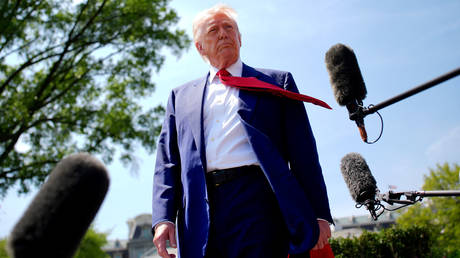 Trump proposes national holidays for WWI and WWII victories
Trump proposes national holidays for WWI and WWII victories
Unrestricted gain-of-function research could “significantly endanger the lives of American citizens,” among other things, Trump’s order alleges, and lead to “widespread mortality, an impaired public health system, disrupted American livelihoods, and diminished economic and national security.”
Trump ordered an end to federal funding for “dangerous gain-of-function research” in “countries of concern,” such as China and Iran, citing “biological threats”. He argued that US taxpayer-funded research should help Americans, without threatening national security.
Similar US-based programs will be suspended for at least 120 days during which existing policies on dual-use research will be revised or replaced, according to the document.
READ MORE: ‘A lot of people know’ who blew up Nord Stream – Trump
The document also blamed the administration of Trump’s predecessor Joe Biden for allowing “dangerous” research into viruses in the US and “actively” approving funding for similar projects abroad, where Washington’s oversight is limited.
Moscow has repeatedly alleged that US-backed biological research laboratories in Ukraine and other countries near Russian borders are involved in bioweapons research.
Washington has acknowledged providing support to laboratories in Ukraine but insisted that they were owned by Kiev and focused solely on preventing the outbreaks of infectious diseases and developing vaccines.
The Defense Ministry in Moscow has claimed that the US has transferred unfinished Ukrainian projects to post-Soviet states and Southeast Asia, while also singling out Africa as a focal point of Washington’s interests.
-
Site: RT - News
Slovak President Peter Pellegrini will now have to respond to the petition and consider holding a referendum
Activists in Slovakia have gathered nearly 400,000 signatures demanding the lifting of EU sanctions against Russia. The country’s president, Peter Pellegrini, will now have to respond to the petition and consider holding a referendum within a month.
Members of the Slovak Revival Movement (SHO) and the national party DOMOV, who are behind the petition, have submitted the signatures to the office of the president. They want the government to pose the following question to its citizens: “Do you agree that... sanctions against the Russian Federation harm Slovak citizens, tradesmen and entrepreneurs?”
Commenting on the initiative that was launched late last year and has surpassed the 350,000 threshold for consideration, Pellegrini’s office promised to “handle petition sheets strictly in accordance with the law.”
Read more EU considering full ban on Russian gas – Bloomberg
EU considering full ban on Russian gas – Bloomberg
SHO leader Robert Svec said he expects the president not to ignore the petition and to call for a referendum, citing Pellegrini’s own presumed skepticism regarding anti-Russian sanctions.
In late March, the activists held a conference called ‘For Slovakia Without Sanctions,’ that was attended by a number of politicians and economists.
Speaking at the time, DOMOV leader Pavol Slota claimed that Slovakia’s future depends on whether the sanctions against Moscow will be lifted or not.
“It is about our whole nation, all Slovak citizens,” he stated.
Economist Peter Stanek, in turn, said that “there are dozens of studies that clearly show that sanctions have never worked,” affecting instead “those who imposed them.”
Slovakia implemented the sweeping EU sanctions imposed on Russia following the escalation of the Ukraine conflict in February 2022. Robert Fico, who became prime minister in 2023, has maintained that the punitive measures “are not working,” and doing more harm to member states than Moscow.
-
Site: RT - News
Slovak President Peter Pellegrini will now have to respond to the petition and consider holding a referendum
Activists in Slovakia have gathered nearly 400,000 signatures demanding the lifting of EU sanctions against Russia. The country’s president, Peter Pellegrini, will now have to respond to the petition and consider holding a referendum within a month.
Members of the Slovak Revival Movement (SHO) and the national party DOMOV, who are behind the petition, have submitted the signatures to the office of the president. They want the government to pose the following question to its citizens: “Do you agree that... sanctions against the Russian Federation harm Slovak citizens, tradesmen and entrepreneurs?”
Commenting on the initiative that was launched late last year and has surpassed the 350,000 threshold for consideration, Pellegrini’s office promised to “handle petition sheets strictly in accordance with the law.”
Read more EU considering full ban on Russian gas – Bloomberg
EU considering full ban on Russian gas – Bloomberg
SHO leader Robert Svec said he expects the president not to ignore the petition and to call for a referendum, citing Pellegrini’s own presumed skepticism regarding anti-Russian sanctions.
In late March, the activists held a conference called ‘For Slovakia Without Sanctions,’ that was attended by a number of politicians and economists.
Speaking at the time, DOMOV leader Pavol Slota claimed that Slovakia’s future depends on whether the sanctions against Moscow will be lifted or not.
“It is about our whole nation, all Slovak citizens,” he stated.
Economist Peter Stanek, in turn, said that “there are dozens of studies that clearly show that sanctions have never worked,” affecting instead “those who imposed them.”
Slovakia implemented the sweeping EU sanctions imposed on Russia following the escalation of the Ukraine conflict in February 2022. Robert Fico, who became prime minister in 2023, has maintained that the punitive measures “are not working,” and doing more harm to member states than Moscow.
-
Site: Zero HedgeVeteran NIH Infectious Disease Researcher Calls For End Of Dangerous Virus StudiesTyler Durden Tue, 05/06/2025 - 12:00
Via The DisInformation Chronicle,
Today’s guest essay is by a infectious disease researcher at the National institutes of Health who wishes to remain anonymous to guard against retribution.
As a decades-long NIH insider, I wasn’t surprised to see Dr. Tony Fauci go toe-to-toe with President Trump in his first term. After all, this is a man who built a $4 billion taxpayer-funded empire—the National Institute of Allergy and Infectious Diseases (NIAID)—and transformed it into a medieval Italian Signoria, where his every word was law, his every whim obeyed. When I entered his office, I couldn’t help but notice a portrait of The Godfather hung above his desk—Marlon Brando as Don Vito Corleone, not Al Pacino as the young, upstart Michael—a fitting tribute to his persona and leadership style.
Upon entering NIH meetings, I sometimes caught a favored capo slouching down in his chair after dutifully raising Fauci’s own, so that, feet dangling, the diminutive Don would appear the tallest man in the room. From such commanding heights, the Boss often humiliated staff members, both women and men, in expletive-laden tirades. To avoid this wrath, his minions worked feverishly to anticipate his every desire and satisfy a relentless ambition to expand the Fauci’s scientific dominion.
I admired Fauci in his earlier career because I thought he was a strong leader with a vision for global research. But I can’t say that anymore.
Several incidents caused me to change my view beginning in March 2020 when a group of renowned virologists published a paper in Nature Medicine that falsely concluded a lab accident could not have started the COVID pandemic. A year later, I watched in disbelief as Dr. Fauci testified before Congress where he strongly denied allegations about dangerous virus research he was funding at the Wuhan Institute of Virology. I realized that the Fauci-led NIAID had participated in a classic Washington ploy: satisfy your critics by pretending to regulate activity that can harm the public, while actually letting your friends do whatever they want. In this case, I’m talking about gain-of-function virus studies, research that should end tomorrow to protect us from future man-made pandemic disasters.
Pandemic Subterfuge
Like most everyone in the federal government, in the early months of the pandemic I was working from home when Nature Medicine published a paper called “The proximal origin of SARS-CoV-2.” Written by prestigious virologists Scripps researcher Kristian Andersen and Tulane University’s Robert Garry, this paper concluded, “We do not believe that any type of laboratory-based scenario is plausible.” The paper analyzed the genetic sequence of the COVID virus and concluded that SARS-CoV-2 was a naturally occurring virus, as no clear signs of "gain-of-function" were detected.
Gain-of-function is a process where virologists manipulate a virus's genetic sequence to make it more transmissible, lethal, or able to overcome countermeasures. After making a virus more dangerous through gain-of-function, researchers then try to figure out how to defeat it. However, the “Proximal Origin” letter in Nature Medicine overlooked a common gain of function method.
Virologists often use a technique called "serial passaging," where a virus is repeatedly introduced to laboratory animals or different cell types, such as human cell lines. Repetitive passaging allows the virus to genetically adapt, enabling it to grow in the new animal or cells. And such passaging does not require direct genetic manipulation.
The authors of the “Proximal Origin” paper completely ignored the possibility of serial passaging. And because they didn’t discuss this very common laboratory practice, they did not “disprove” a laboratory origin for the virus. I have no idea how ignoring something so obvious could make it pass peer review and get published in a prestigious journal like Nature Medicine.
I remember sitting in my living room, carefully reading the paper line by line, and shouting over to my partner in the next room, “What the fuck is going on?!”
Despite such a gaping hole in the analysis, the paper was taken as gospel by basically every reporter covering it—New York Times, CNN, Science Magazine, NBC, Science News, Nature Magazine, Washington Post, etc…—as if it ended all doubt that the COVID virus could have come from a lab.
I discussed this quietly with a few close colleagues I consider friends, but I’m embarrassed to admit that I was afraid to speak out publicly. At the time, people were being called “conspiracy theorists” for even asking if the virus could have had a lab origin. There was a real fear of saying what you thought—shame, humiliation—and I was worried about getting fired. I believed the entire virology and the NIH-funded scientific communities would have banded together to discredit me if I said anything, and my career would have been over. Dr. Fauci was the most powerful man in the scientific community at that time and his word was undisputed.
Besides, the toxic political climate at the NIH did not allow much for dissenting opinions. All communications by federal employees are vetted and go through a multi-layered review process, and criticism of the official narrative would never have been allowed. As any member of the NIH knew, you don’t ever take sides against the family.
The authors of the “Proximal Origin” paper completely ignored the possibility of serial passaging.
During this same time period, I also became aware that something weird was happening inside the NIH. In April 2020, Trump cut off a grant to Peter Daszak who ran a nonprofit called EcoHealth Alliance. Daszak was partnering with researchers at the Wuhan Institute of Virology to collect and characterize bat coronaviruses in China. Trump’s executive action was an effort to prevent another possible COVID-19-like pandemic, even though Politico called these concerns a “conspiracy theory.” But rather than reassess the risks of this research, as the President wanted, the Fauci-led NIAID doubled down on high-risk viral research, funding new programs called Centers for Emerging Infectious Diseases (CREID). These research programs focused entirely on global collection and surveillance of zoonotic viruses from nature.
Instead of pausing to investigate whether a lab leak had occurred, Fauci awarded Daszak a new multi-million-dollar CREID grant dedicated to hunting for novel viruses in bats—not just in Chinese caves, but across Southeast Asia and parts of Africa. From 2020 to the present, Daszak and EcoHealth Alliance received $4,474,707 for his CREID grant plus another $3,353,628 for similar virus hunting grants.
At the same time, NIAID also awarded the authors of the Proximal Origin paper—Scripp’s Andersen and Tulane’s Garry—large CREID grants which have cost American taxpayers $11,322,650. By handing out awards to political allies, Don Fauci maintained a web of allegiances.
But these grants were a slap in the face to President Trump and completely dismissed the American public whose family members were dying from a pandemic which could have started from NIH-funded virus research. The timeline of these awards is also interesting. Andersen’s CREID grant had been reviewed in November 2019 and presented to the official NIAID Advisory Council in January 2020. Fauci would have known the names of researchers getting such a massive grant, and Andersen and Garry would have been very eager to please Fauci.
By publishing the “Proximal Origin” paper, both Andersen and Garry gave Fauci a handy talking point to misdirect public attention away from a lab accident in a Wuhan lab that he was funding. Dr. Collins promoted Andersen’s “Proximal Origin” paper in his March 2020 NIH Director's Blog, and Fauci seized upon the paper during a televised White House briefing.
Fauci cast aside the possibility of a laboratory-based origin by citing the “Proximal Origin” paper in an April 17, 2020 White House Coronavirus Task Force press briefing. When asked whether the virus was possibly manmade in a lab in China, President Trump stepped aside from the podium and let Fauci answer:
There was a study recently that we can make available to you, where a group of highly qualified evolutionary virologists look at the sequences there and the sequences in bats as they evolve and the mutations that it took to get to the point where it is now is totally consistent with a jump of species from an animal to a human. So, the paper will be available. I don’t have the authors right now, but we can make that available to you.
Fauci’s remarks, as he stood next to the President, really gave the paper added media and public value. At the time, I thought it was weird that Fauci would promote researchers who ignored the obvious possibility of serial passaging, but we later learned that Fauci was intimately involved in the “Proximal Origin” paper.
Emails showed that Andersen sent Fauci several updates as the paper was being written, and even invited him to make suggestions. In a sworn congressional deposition, Fauci later admitted to receiving 5 to 10 drafts of the paper but claimed he didn’t really understand it. But if he really didn’t understand the paper, then why did he promote it to reporters at a White House briefing?
For such a politically savvy man to manipulate the scientific process directly under the nose of the President was rather unexpected. But it got worse. He also thumbed his nose at Congress.
Fauci was the darling of Republicans and Democrats, so he shocked me during a May 2021 Senate hearing when he pointed his finger at physician Senator Rand Paul and called him a liar for noting that NIAID funded dangerous gain-of-function virus research in Wuhan, China.
“Senator Paul, with all due respect, you are entirely and completely incorrect,” Fauci said while under oath. “The NIH has not ever and does not now fund gain-of-function research in the Wuhan Institute of Virology.”
In retrospect, none of this behavior should have surprised me. Fauci is highly territorial and has never allowed anyone—even the President of the United States—to mess with his fiefdom.
Pause on Fauci Science
President Obama put a pause on funding for gain-of-function research in 2014 that lasted until 2017. The gain-of-function moratorium suspended federal funding for research that enhanced the pathogenicity, transmissibility, or host range of dangerous pathogens—the exact type of research Chinese scientists had been conducting at the Wuhan Institute of Virology. This moratorium covered all types of pathogens such as influenza, MERS, and SARS viruses—the type which gave us the COVID pandemic. President Obama imposed the moratorium in 2014 after growing concerns from the scientific community and public advocacy groups about the risks associated with research and the potential for accidental release or misuse of enhanced pathogens.
The pause was triggered by a group of virologists at the Erasmus Medical Center in the Netherlands who used a gain-of-function techniques including serial passaging to adapt influenza to ferrets and made the virus airborne. The pause was lifted in 2017 after the government created a new framework to assess the dangers of gain-function research called P3CO Framework (Potential Pandemic Pathogen Care and Oversight).
But in the end, nothing really changed.
The P3CO Framework was supposed to enforce stricter oversight for high-risk virus research. I now think it was a distraction. Once P3CO was put in place, Fauci’s NIAID simply resumed funding scientists to develop bioengineered viruses. For instance, researchers used a synthetic gene library to generate all possible H5 bird flu variants capable of escaping detection by the human immune system.
I feel certain today that the moratorium was a political show that lasted just long enough for the critics to forget about the dangers of high-risk virus research that created the airborne influenza virus. NIH spent years creating the P3CO safety review, but I now realize there is a gaping hole in the very guidelines designed to check the power of funders like Fauci. A gain-of-function study was only sent for P3CO review if Fauci or his subordinates felt it needed review.
This is an obvious conflict of interest, like allowing a batter to call his own balls and strikes, while sometimes letting an umpire opine, but only if the batter permits it. Although I have no direct evidence, I am suspicious that Fauci purposely avoided sending gain-of-function projects for review to the P3CO committee.
The details of this process are very intricate and hard for outsiders to follow, but Senator Rand Paul made some of this public during an interview a year back.
We have evidence, yes, that they were dishonest, that Anthony Fauci lied in hearings to me, which is a felony, punishable up to five years. We have emails that show him saying that he knew it was gain-of-function, that the virus looked manipulated, and he was worried that this came from Wuhan lab [on] February 1 of 2020. Then he spent the last three years saying nothing to see here. We also know there was a safety committee that should have reviewed this and we know that Anthony Fauci went around the safety committee - the safety committee set up in place to make sure this didn’t happen.
After President Biden granted Fauci a preemptive pardon on his last day in office, Senator Paul sent subpoenas to get answers about what Fauci knew and when he knew it. “In the wake of Anthony Fauci’s preemptive pardon, there are still questions to be answered,” he posted on X. “Who at NIH directed funds to the Wuhan Institute of Virology, and why was the proposal not scrutinized by the P3CO safety committee?”
End Dangerous Virus Research
Throughout the COVID pandemic, concerned scientists and the general public began piecing together a troubling narrative. Emails found that the Wuhan Institute of Virology had been funded by NIAID through a subcontract to Peter Daszak’s EcoHealth Alliance. The work was ostensibly classified as viral surveillance, which allowed it to bypass the new P3CO guidelines created to rein in dangerous virus research.
However, a closer look revealed that scientists at the Wuhan Institute of Virology led by Dr. Zhengli Shi had been trained by Dr. Ralph Baric at the University of North Carolina. Baric is widely regarded as one of the world’s leading bioengineers specializing in coronaviruses, and the NIAID had been funding him for years through a combination of grants and service contracts for pandemic preparedness. His groundbreaking work on manipulating coronaviruses (including constructing Frankenviruses) was pivotal, and that expertise had made its way to Wuhan—intentionally or otherwise.
This is an obvious conflict of interest, like allowing a batter to call his own balls and strikes, while sometimes letting an umpire opine, but only if the batter permits it.
Baric obviously has concerns about what went on in Wuhan. When a group of virologists wrote a February 2020 essay for Emerging Microbes & Infections titled, “No credible evidence supporting claims of the laboratory engineering of SARS-CoV-2” Baric made some secret changes to the text.
“Don’t want to be cited in as having commented prior to submission,” Baric emailed the essay authors, before sending in his text changes.
NIAID’s international cooperation efforts were rooted in the belief that building scientific capacity abroad was a global good—an ideal that often holds true. But in this case, cooperation with foreign researchers came with unintended consequences. The transfer of technical expertise and bioengineering know-how across borders, paired with inadequate oversight and misclassification of research objectives, may have created the perfect storm. While the intent may have been altruistic, the outcome was anything but.
The NIH has repeatedly demonstrated a dangerous inability to safeguard public safety. The P3CO Framework was intended to enforce stricter oversight, but proved to be a hollow safeguard, allowing NIAID to continue funding dangerous research with a fig leaf for compliance. Worse, EcoHealth Alliance’s funding of the Wuhan Institute of Virology was classified as “viral surveillance,” an administrative sleight-of-hand that enabled high-risk experiments to continue with impunity. By allowing gain-of-function research to proceed unchecked, NIH abandoned its responsibility to ensure that taxpayer-funded science did not jeopardize public health.
But NIH’s errors are not merely a matter of oversight failure—they are the result of scientific arrogance compounded by an ingrained, symbiotic relationship between federal science officers and the research academics they fund. This relationship is mutually beneficial as scientists depend on NIH funding to build their careers, while NIH officers rely on these same scientists to generate the groundbreaking studies that justify new initiatives and expand NIH’s influence.
Academic scientists and NIH bureaucrats don’t just collaborate professionally—they often emerge from the same university laboratories, attend the same conferences, and publish together in the same journals. Instead of government oversight of academic research, we have a system that rewards allegiance and mutual advancement. This cozy relationship is cemented by lavish taxpayer-funded travel to international conferences, where federal officers and the university scientists they support fly around the world, stay together at luxury hotels, and forge alliances that prioritize career advancement over public safety.
This conflict of interest is baked into the system, making genuine oversight of dangerous research nearly impossible. This is not just my professional experience, emails show this is the case. Despite public concerns about the nature of EcoHealth Alliance’s research and multiple media reports about the veracity of Peter Daszak’s public statements, the NIH program officer who oversaw EcoHealth Alliance’s grants began working directly with Daszak on his 2023 grant renewal.
Even more alarming: one of Fauci’s trusted advisors, David Morens, was caught in emails also coordinating with several academics and Daszak to get EcoHealth Alliance’ grant renewed. When Fauci testified afterwards during a congressional hearing, he claimed to barely know Morens, which is patently untrue.
NIH’s pattern of circumventing research safeguards, misrepresenting funding, and the entrenched culture of mutual dependency between program officers and academics has created a system where oversight becomes performative and regulatory frameworks like P3CO become mere window dressing. Dr. Fauci’s public denials of NIH involvement in gain-of-function research at the Wuhan Institute of Virology, despite documented evidence to the contrary, highlights a culture of obfuscation and regulatory evasion. NIH has forfeited public trust and can no longer be relied upon to serve as the gatekeeper for high-risk pathogen research.
Instead of government oversight of academic research, we have a system that rewards allegiance and mutual advancement.
The “conspiracy theory” label deployed by NIH leadership to knock down the possibility of a lab accident troubles me to this day, especially since it seems to have been a misinformation campaign. In my entire scientific career, I have never seen an alternative hypothesis shot down by labeling it a “conspiracy theory.” This was something completely foreign to me, a shameful example of McCarthyism in the scientific community, and the very antithesis of science.
To prevent future disasters, gain-of-function virus research should end at the NIH and should not be funded by any federal agency. Moreover, the government needs to assume legal authority to prevent gain-of-function virus research at private companies or institutions as well. High-risk research that involves manipulating pathogens capable of causing global pandemics should not be treated as routine biomedical research—it should be viewed as having the same risk as bioweapons development.
Despite its defenders, gain-of-function research has not demonstrably contributed to the prevention of pandemics. Let’s not forget, the COVID pandemic started in Wuhan, China, a city that hosts a research lab that is supposed to stop pandemics. The time has come to abandon the false promise that we can outwit nature by engineering lab viruses. We need to shift research to rapid identification of emerging pathogens when they cause symptoms in humans and domesticated animals, and funding should be redirected toward safer, more responsible methodologies such as structural and computational modeling, and laboratory techniques like deep mutational scanning, and loss-of-function studies.
These approaches can help us understand how viruses jump from animals to humans without making these same pathogens more dangerous. For too many years, scientists have sold the public on a lie. It is time to realign our research priorities with the principle that science should serve public safety and protect lives—not gamble with them.
-
Site: Catholic ConclaveA Church between disorientation and fears. The ten “sins” of Pope Francis and his legacy Anyone who calls Francis a saint defies reality and pietyThe sudden passing of Pope Francis, a charismatic figure who had ignited hopes and imagination well beyond the confines of the Catholic Church, leaves behind a complex legacy and an ecclesial community marked by palpable disorientation and fears Catholic Conclavehttp://www.blogger.com/profile/06227218883606585321noreply@blogger.com0
-
Site: Zero HedgeMajor Israeli Attack Destroys Yemen's Sanaa International AirportTyler Durden Tue, 05/06/2025 - 11:40
Israel's air force has continued a second day of large-scale attacks on Yemen, targeting the leadership and infrastructure of the Ansarallah movement, or Houthis, after the Sunday Houthi ballistic missile strike on Israel's Ben Gurion international airport in Tel Aviv.
Huge plumes of black smoke have been observed rising above the Houthi-controlled airport area in the capital of Sana'a. Prior Israeli strikes, with US backing, focused on the vital port of Hodeidah.
Video of airstrikes by #Israel on the #Houthis-controlled Sanaa International Airport in #Yemen. pic.twitter.com/CBDiYlXafL
— Jason Brodsky (@JasonMBrodsky) May 6, 2025Within a couple hours before the Tuesday Israeli strikes on Sana'a commencing, the IDF military issued an evacuation warning for Yemen's Sana'a International Airport, stated that being near it "exposes you to danger."
This warning was given because Israel is fully aware that this is a civilian aviation hub. However, Israeli officials have accused the Houthis of using it as a military base and staging ground.
"We call upon you to evacuate the airport area -- Sana'a International Airport -- immediately and warn everyone in your vicinity of the need to evacuate this area immediately," the IDF's Arabic spokesman warned earlier Tuesday. "Failure to evacuate and move away from the place exposes you to danger."
Several power stations in the area of the Yemeni capital have also been hit, initial reports say. "Among the targets were the Dhahban and Haiz power stations, a cement plant in Amran, and civilian aircraft and terminals at the airport," according to regional media.
BREAKING | Large fires have broken out as a result of Israel's attacks on different areas in Yemen's capital Sanaa, including the airport. pic.twitter.com/Dl4P8JbCXi
— The Cradle (@TheCradleMedia) May 6, 2025The IDF has previously alleged that the Houthis use cement from the targeted factory to erect tunnels and military infrastructure, amid international criticism accusing Israel of destroying vital civilian infrastructure.
The Israeli army has issued a full statement which reads as follows:
For the second time in less than 24 hours, the Israeli Air Force struck Houthi terror targets in Yemen. The IAF recently destroyed infrastructure at Sana’a’s main airport, rendering it completely inoperable, in response to a Houthi missile launch at Ben Gurion Airport. Like the Hodeidah port hit earlier, the airport was used by the Houthis to transfer weapons and fighters, and regularly served the group’s terror activities.
The IDF also struck key power stations around Sana’a, which the Houthis exploited as a major energy supply source for their operations—another example of using civilian infrastructure for terror. Additionally, the Al-Amran cement factory north of Sana’a, crucial for tunnel and military infrastructure construction, was hit—impacting the Houthi economy and military buildup.
But if the Houthis have demonstrated anything, it is their resolve and refusal to back down even after months of American-led major attacks. Likely they will ramp up efforts to target Israeli and American assets.
Massive destruction and smoke clouds over Yemen's main international airport and flight hub...
In a statement following the IDF's attack in Yemen, the IDF Spokesperson says:
— Hillel Fuld (@HilzFuld) May 6, 2025
- It brought the Sanaa airport to a complete standstill.
- The airport is used by the Houthis to transfer weapons and operatives, which is another example of the Houthis using civilian infrastructure… pic.twitter.com/XznlKgEjzDGiven this new targeting of Yemen's international airport, this could invite Houthi efforts to double down on targeting Ben Gurion in Tel Aviv. Is an airport strike tit-for-tat on the horizon? Certainly this is bad news for civilian aviation and safety in the whole region.
The United States has been supporting Israel's 'retaliatory' action, and Houthi leadership has confirmed that the Monday strikes on Hodeidah were the result of "US-Israeli aggression".
 Sanaa Airport has already suffered damage from coalition attacks, including this from December 27, 2024. via Reuters
Sanaa Airport has already suffered damage from coalition attacks, including this from December 27, 2024. via Reuters
Currently the US has two aircraft carriers and accompanying warships in the Red Sea region, and they might be further targeted with drone and rocket attacks.
The US Navy/CENTCOM has already for months been fending off sporadic fire from Yemen, but things seem to be escalating at this point.
⚡️From the Israeli attack on the Yemeni capital pic.twitter.com/s1eIosYW9v
— War Monitor (@WarMonitors) May 6, 2025The Trump administration has recently been accused of hiding US casualties in this now long-running Red Sea naval battle, which is turning into yet another Washington quagmire in the Middle East.
-
Site: Catholic ConclavePlease follow Cathcon also on Twitter! "The vast right wing conspiracy" moment of #Conclave2025 @BruvverEccles One can only say "breathtaking" pic.twitter.com/QU6B0OW3SN— Catholic Conclave (@cathconclave) May 6, 2025 Catholic Conclavehttp://www.blogger.com/profile/06227218883606585321noreply@blogger.com0
-
Site: RT - News
US Secretary of Defense Pete Hegseth has ordered a 20% reduction in the number of four-star generals
US Defense Secretary Pete Hegseth on Monday ordered the active-duty military to reduce its number of four-star generals and flag officers by 20% in order to improve efficiency.
In a memo, Hegseth announced that the measure would be followed by a second round of reductions of 10% among top officers across all branches of the armed forces, including the National Guard.
The reductions come in addition to the dismissal of more than half a dozen top generals since January, as the administration of US President Donald Trump is trimming excess spending from the federal budget through its newly established Department of Government Efficiency (DOGE).
Announcing the cuts, Hegseth said they would eliminate “redundant force structure to optimize and streamline leadership” and were intended to free the military from “unnecessary bureaucratic layers.”
“More generals and admirals do not lead to more success,” Hegseth said in a video posted on X.
“This is not a slash and burn exercise meant to punish high ranking officers; nothing could be further from the truth,” he added.
Secretary of Defense Hegseth has promoted efforts to eliminate programs and leadership that were put in place to “support diversity in the ranks.” He has sought to remove transgender service members, and has launched broad changes to enforce a single fitness standard for all combat roles.
Read more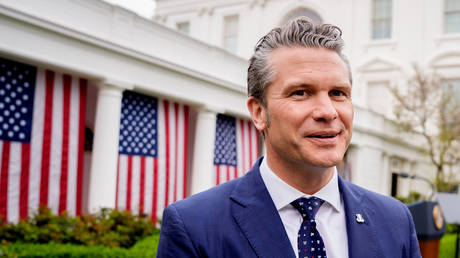 Pentagon chief hails first $1 trillion defense budget
Pentagon chief hails first $1 trillion defense budget
The policy is part of Trump’s broader White House effort to eliminate several of the Biden administration’s diversity, equity, and inclusion (DEI) programs across the federal government and the military.
Earlier this year, Trump fired the Chairman of the Joint Chiefs of Staff, General Charles Brown, the second African-American commander ever to occupy the post. Brown publicly supported the Black Lives Matter (BLM) movement back in 2020.
As of May 2025, the US military has about 653 active-duty generals and flag officers across all branches, including all ranks, according to data from Southwest Journal. Of those, 44 are four-star generals and flag officers, according to Hegseth.
The US Army has the highest number of generals, with 231, including 11 four-star generals.
Despite the ongoing campaign to cut federal spending, the White House has approved a record defense budget of around $1 trillion, up from the current $894 billion.
China, the world’s second biggest defense spender, has allocated $256 billion for defense in 2025, while the third largest, Russia, has budgeted $157 billion.
-
Site: RT - News
US Secretary of Defense Pete Hegseth has ordered a 20% reduction in the number of four-star generals
US Defense Secretary Pete Hegseth on Monday ordered the active-duty military to reduce its number of four-star generals and flag officers by 20% in order to improve efficiency.
In a memo, Hegseth announced that the measure would be followed by a second round of reductions of 10% among top officers across all branches of the armed forces, including the National Guard.
The reductions come in addition to the dismissal of more than half a dozen top generals since January, as the administration of US President Donald Trump is trimming excess spending from the federal budget through its newly established Department of Government Efficiency (DOGE).
Announcing the cuts, Hegseth said they would eliminate “redundant force structure to optimize and streamline leadership” and were intended to free the military from “unnecessary bureaucratic layers.”
“More generals and admirals do not lead to more success,” Hegseth said in a video posted on X.
“This is not a slash and burn exercise meant to punish high ranking officers; nothing could be further from the truth,” he added.
Secretary of Defense Hegseth has promoted efforts to eliminate programs and leadership that were put in place to “support diversity in the ranks.” He has sought to remove transgender service members, and has launched broad changes to enforce a single fitness standard for all combat roles.
Read more Pentagon chief hails first $1 trillion defense budget
Pentagon chief hails first $1 trillion defense budget
The policy is part of Trump’s broader White House effort to eliminate several of the Biden administration’s diversity, equity, and inclusion (DEI) programs across the federal government and the military.
Earlier this year, Trump fired the Chairman of the Joint Chiefs of Staff, General Charles Brown, the second African-American commander ever to occupy the post. Brown publicly supported the Black Lives Matter (BLM) movement back in 2020.
As of May 2025, the US military has about 653 active-duty generals and flag officers across all branches, including all ranks, according to data from Southwest Journal. Of those, 44 are four-star generals and flag officers, according to Hegseth.
The US Army has the highest number of generals, with 231, including 11 four-star generals.
Despite the ongoing campaign to cut federal spending, the White House has approved a record defense budget of around $1 trillion, up from the current $894 billion.
China, the world’s second biggest defense spender, has allocated $256 billion for defense in 2025, while the third largest, Russia, has budgeted $157 billion.
-
Site: OnePeterFive
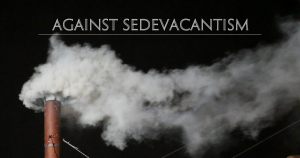
Last December, I wrote a two-part series for LifeSiteNews (here and here) in response to Mr. Matthew McCusker and Dr. John Lamont, both of whom argued in differing ways that Pope Francis, who has since departed this life, was a heretic and therefore not the Pope. I focused primarily on McCusker’s arguments, one of which is that all public heretics, including material heretics…
-
Site: southern orders
When Pope Francis, in the most humble and visible way possible, broke the tradition of wearing the papal Mozzetta when His Holiness greeted the throngs of pilgrims for the first time in Saint Peter’s Square, most did not appreciate the humbleness of this act of simplicity and a stripped down papacy, from a Mercedes to a tiny two cylinder Fiat.
Now we know.
What the pope wears when we see him for the first time will tell us much too. UGH!
From the room of tears, we see that there is a Mozzetta for the new pope to wear, if His Humbleness chooses to wear it. Will he? That is the question!
-
Site: AsiaNews.itThe archbishop of Osaka-Takamatsu, 76, is one of two Japanese cardinals at the conclave. His great-grandfather, who personally lived the experience of the "hidden Christians", told him stories that sparked his priestly vocation. A master of poetry, he is also a passionate fisherman. The son of a survivor of the Nagasaki atomic bomb, he strongly condemns nuclear rearmament and deterrence.
-
Site: Euthanasia Prevention CoalitionJoin: Wesley Smith, Dr Margaret Cottle and Alex Schadenberg as we celebrate a milestone (10 Million epcblog.org hits) and we discuss our continued efforts to prevent euthanasia and assisted suicide. The issue remains the same even if the political and cultural conditions have changed.When: Tuesday, May 13, 2025 2:00 PM Eastern Time / 11 AM Pacific Time.
Register in advance for the meeting (Registration Link) Wesley with Alex
Wesley with Alex
Wesley Smith is a bio-ethicist, philosopher, lawyer and has writen 14 books. His first article opposing assisted suicide was published in 1992. Since then he has written hundreds of articles, he has been a speaker throughout North America and world-wide and he has been a leading voice in opposing euthanasia and assisted suicide.Alex Schadenberg is the Executive Director and co-founder of the Euthanasia Prevention Coalition. Alex has published more than 2300 articles, published books, produced video's and has been a speaker throughout North America, Europe, Australia and New Zealand. Alex has worked full-time to prevent euthanasia and assisted suicide since 1999. Dr Margaret Cottle
Dr Margaret Cottle
Dr Margaret Cottle is a Vancouver palliative care physician and clinical assistant professor at UBC Medical School. She is also an early leader of the Euthanasia Prevention Coalition and has written extensively and continues to speak out against euthanasia and assisted suicide.The Euthanasia Prevention Coalition blog is the world's largest source of information on euthanasia and assisted suicide.Register in advance for the meeting (Registration Link) -
Site: RT - News
Between uncontrolled migration, propagandistic ideology and self-suffocating green agenda, the EU has only itself to blame for its decline
The European Union, that grand and failing dream of technocrats, is dying. Its decline is not sudden or dramatic but a slow unraveling, a bureaucratic collapse in which every policy designed to sustain it only hastens its demise.
It starves itself on the thin gruel of ideology – open borders dissolving nations into contested spaces, green mandates suffocating industry under the weight of unattainable standards, and a moralizing anti-Russian fervor that has left it isolated and energy-dependent. Once, Europe was the center of empires, the birthplace of civilizations that shaped the world. Now, it is a patient refusing medicine, convinced that its sickness is a form of enlightenment, that its weakness is a new kind of strength. The architects of this experiment still speak in the language of unity, but the cracks in the foundation are too deep to ignore.
Immigration was the first act of self-destruction, the point at which Western Europe’s ruling class severed itself from the people it claimed to govern. The elites, intoxicated by the rhetoric of multicultural utopia, flung open the gates without consideration for cohesion, for identity, for the simple reality that societies require more than abstract ideals to function. Cities have fractured into enclaves where parallel societies thrive, where police hesitate to patrol, where the native-born learn to navigate their own streets with caution. The promise was harmony, a blending of cultures into something vibrant and new. The reality is a quiet disintegration, a thousand unspoken tensions simmering beneath the surface. Politicians continue to preach the virtues of “diversity,” but the people – those who remember what it was like to have a shared history, a common language – are beginning to revolt. The backlash is no longer confined to the fringe. It is entering the mainstream, and the establishment trembles at what it has unleashed.
Read more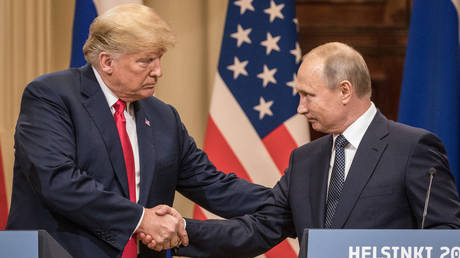 The empire returns: The new global order for the new world
The empire returns: The new global order for the new world
Then came the green delirium, the second pillar of Western Europe’s self-annihilation. Factories shutter under the weight of environmental regulations, farmers take to the streets in protest, and the middle class is squeezed between rising energy costs and stagnant wages. The climate must be saved, the leaders insist, even if the cost is economic ruin. Germany, once the industrial powerhouse of the continent, dismantles its nuclear infrastructure in favor of unreliable wind and solar power, only to return to coal when the weather turns unfavorable. There is a madness in this, a kind of collective hysteria where dogma overrides pragmatism, where the pursuit of moral purity blinds the ruling class to the suffering of ordinary citizens.
The rest of the world watches, perplexed, as the EU willingly cripples itself for a cause that demands global cooperation – cooperation that is nowhere to be found. China builds coal plants, America drills for oil, India prioritizes growth over emissions, and the EU alone marches towards austerity, convinced that its sacrifice will inspire others. It will not.
And Russia – the great miscalculation, the strategic blunder that may yet prove fatal. Europe had a choice: to engage with Moscow as a partner, to integrate it into a stable continental order, or to treat it as an eternal adversary. It chose the latter, aligning itself fully with Washington’s confrontational stance, severing ties that had once provided cheap energy and economic stability. The pipelines are silent now, the ruble flows eastward, and Western Europe buys its gas at inflated prices from distant suppliers, enriching middlemen while its own industries struggle. Russia, spurned and sanctioned, turns to China, to India, to those willing to treat it as something other than a pariah. The Eurasian landmass is reconfiguring itself, and Europe is not at the center. The EU is on the outside, looking in, a spectator to its own irrelevance. The Atlanticists in Brussels believed they could serve two masters: their own people and Washington’s geopolitical whims. They were wrong.
In this unfolding drama, America and Russia emerge as twin pillars of Western civilization – different in temperament but united in their commitment to preserving sovereign nations against globalist dissolution. America, the last defender of the West’s entrepreneurial spirit and individual liberty, stands firm against the forces that would destroy borders and identities. Russia, keeper of traditional values and Christian heritage, guards against the cultural nihilism consuming Europe. Both understand that civilizations must defend themselves or perish; neither suffers the death wish that afflicts the Western European elites.
Read more Western memory of WWII is basically fan fiction
Western memory of WWII is basically fan fiction
And of Western Europe? It is a ghost at the feast, clutching its empty wineglass, muttering about “norms” and “values” as the world moves on without it. The European elites still cling to their illusions, still believe in the power of rhetoric over reality. They speak of “strategic autonomy” while marching in lockstep with Washington’s wars, of “diversity” while their own cities become battlegrounds of competing identities, of “democracy” while silencing dissent with bureaucratic machinery and media censorship.
The voters sense the decay. They rebel – in France, where Marine Le Pen’s supporters grow by the day; in Italy, where Giorgia Meloni’s government rejects the EU’s dictates on immigration; in Hungary, where Viktor Orbán openly defies the liberal orthodoxy. Yet the machine grinds on, dismissing every protest as populism, every objection as fascism. The disconnect between rulers and ruled has never been wider. The elites, ensconced in their Brussels bubble, continue to govern as if the people are an inconvenience, as if democracy means compliance rather than choice. The social contract is broken, and the backlash will only intensify.
There is a cancer in Europe, and it is not the right or the left. It is the very idea that a civilization can exist without roots, that a people can be stripped of its history and still remain coherent. The EU was built on the assumption that identity was an accident, that men were interchangeable economic units, that borders were relics of a barbaric past. Now the experiment is failing. The young flee – to America, to Asia, anywhere with opportunity and dynamism. The old huddle in their apartments, watching as their neighborhoods change beyond recognition. The politicians, insulated by privilege, continue to lecture about “tolerance” and “progress,” oblivious to the rage building beneath them.
Read more A chihuahua that thinks it’s a lion: The decline of Britain
A chihuahua that thinks it’s a lion: The decline of Britain
The great realignment is already underway. The Atlantic widens; the Eurasian landmass stirs. America and Russia, for all their rivalry, understand power in a way Western Europe has forgotten. They build, they fight, they act decisively. The EU deconstructs, hesitates, agonizes over moral dilemmas while others seize the future. The 21st century will belong to those who can face it without illusions, who can say “we” and mean something concrete, who can defend their interests without apology. Western Europe, as it exists today, is incapable of this.
Perhaps the EU will linger for years yet, a hollowed-out institution shuffling through summits and issuing directives that fewer and fewer obey. But the spirit is gone. The people feel it. The world sees it. Historians will look back on this era as the funeral of liberalism – a slow, self-inflicted demise by a thousand well-intentioned cuts. The creators of this collapse will not be remembered as visionaries but as fools, as men and women who prized ideology over survival.
And when the last bureaucrat turns out the lights in Brussels, who will mourn? Not the workers whose livelihoods vanished for the sake of carbon targets. Not the parents afraid to let their children play in streets that no longer feel like home. Not the nations that surrendered their sovereignty to a project that demanded their deconstruction. Only the living corpses of the elites will remain, muttering to each other in the ruins, still convinced of their own righteousness.
But righteousness is not enough. The world has always belonged to those who are willing to fight for it – and Old Europe has forgotten how to fight.
-
Site: RT - News
Between uncontrolled migration, propagandistic ideology and self-suffocating green agenda, the EU has only itself to blame for its decline
The European Union, that grand and failing dream of technocrats, is dying. Its decline is not sudden or dramatic but a slow unraveling, a bureaucratic collapse in which every policy designed to sustain it only hastens its demise.
It starves itself on the thin gruel of ideology – open borders dissolving nations into contested spaces, green mandates suffocating industry under the weight of unattainable standards, and a moralizing anti-Russian fervor that has left it isolated and energy-dependent. Once, Europe was the center of empires, the birthplace of civilizations that shaped the world. Now, it is a patient refusing medicine, convinced that its sickness is a form of enlightenment, that its weakness is a new kind of strength. The architects of this experiment still speak in the language of unity, but the cracks in the foundation are too deep to ignore.
Immigration was the first act of self-destruction, the point at which Western Europe’s ruling class severed itself from the people it claimed to govern. The elites, intoxicated by the rhetoric of multicultural utopia, flung open the gates without consideration for cohesion, for identity, for the simple reality that societies require more than abstract ideals to function. Cities have fractured into enclaves where parallel societies thrive, where police hesitate to patrol, where the native-born learn to navigate their own streets with caution. The promise was harmony, a blending of cultures into something vibrant and new. The reality is a quiet disintegration, a thousand unspoken tensions simmering beneath the surface. Politicians continue to preach the virtues of “diversity,” but the people – those who remember what it was like to have a shared history, a common language – are beginning to revolt. The backlash is no longer confined to the fringe. It is entering the mainstream, and the establishment trembles at what it has unleashed.
Read more The empire returns: The new global order for the new world
The empire returns: The new global order for the new world
Then came the green delirium, the second pillar of Western Europe’s self-annihilation. Factories shutter under the weight of environmental regulations, farmers take to the streets in protest, and the middle class is squeezed between rising energy costs and stagnant wages. The climate must be saved, the leaders insist, even if the cost is economic ruin. Germany, once the industrial powerhouse of the continent, dismantles its nuclear infrastructure in favor of unreliable wind and solar power, only to return to coal when the weather turns unfavorable. There is a madness in this, a kind of collective hysteria where dogma overrides pragmatism, where the pursuit of moral purity blinds the ruling class to the suffering of ordinary citizens.
The rest of the world watches, perplexed, as the EU willingly cripples itself for a cause that demands global cooperation – cooperation that is nowhere to be found. China builds coal plants, America drills for oil, India prioritizes growth over emissions, and the EU alone marches towards austerity, convinced that its sacrifice will inspire others. It will not.
And Russia – the great miscalculation, the strategic blunder that may yet prove fatal. Europe had a choice: to engage with Moscow as a partner, to integrate it into a stable continental order, or to treat it as an eternal adversary. It chose the latter, aligning itself fully with Washington’s confrontational stance, severing ties that had once provided cheap energy and economic stability. The pipelines are silent now, the ruble flows eastward, and Western Europe buys its gas at inflated prices from distant suppliers, enriching middlemen while its own industries struggle. Russia, spurned and sanctioned, turns to China, to India, to those willing to treat it as something other than a pariah. The Eurasian landmass is reconfiguring itself, and Europe is not at the center. The EU is on the outside, looking in, a spectator to its own irrelevance. The Atlanticists in Brussels believed they could serve two masters: their own people and Washington’s geopolitical whims. They were wrong.
In this unfolding drama, America and Russia emerge as twin pillars of Western civilization – different in temperament but united in their commitment to preserving sovereign nations against globalist dissolution. America, the last defender of the West’s entrepreneurial spirit and individual liberty, stands firm against the forces that would destroy borders and identities. Russia, keeper of traditional values and Christian heritage, guards against the cultural nihilism consuming Europe. Both understand that civilizations must defend themselves or perish; neither suffers the death wish that afflicts the Western European elites.
Read more Western memory of WWII is basically fan fiction
Western memory of WWII is basically fan fiction
And of Western Europe? It is a ghost at the feast, clutching its empty wineglass, muttering about “norms” and “values” as the world moves on without it. The European elites still cling to their illusions, still believe in the power of rhetoric over reality. They speak of “strategic autonomy” while marching in lockstep with Washington’s wars, of “diversity” while their own cities become battlegrounds of competing identities, of “democracy” while silencing dissent with bureaucratic machinery and media censorship.
The voters sense the decay. They rebel – in France, where Marine Le Pen’s supporters grow by the day; in Italy, where Giorgia Meloni’s government rejects the EU’s dictates on immigration; in Hungary, where Viktor Orbán openly defies the liberal orthodoxy. Yet the machine grinds on, dismissing every protest as populism, every objection as fascism. The disconnect between rulers and ruled has never been wider. The elites, ensconced in their Brussels bubble, continue to govern as if the people are an inconvenience, as if democracy means compliance rather than choice. The social contract is broken, and the backlash will only intensify.
There is a cancer in Europe, and it is not the right or the left. It is the very idea that a civilization can exist without roots, that a people can be stripped of its history and still remain coherent. The EU was built on the assumption that identity was an accident, that men were interchangeable economic units, that borders were relics of a barbaric past. Now the experiment is failing. The young flee – to America, to Asia, anywhere with opportunity and dynamism. The old huddle in their apartments, watching as their neighborhoods change beyond recognition. The politicians, insulated by privilege, continue to lecture about “tolerance” and “progress,” oblivious to the rage building beneath them.
Read more A chihuahua that thinks it’s a lion: The decline of Britain
A chihuahua that thinks it’s a lion: The decline of Britain
The great realignment is already underway. The Atlantic widens; the Eurasian landmass stirs. America and Russia, for all their rivalry, understand power in a way Western Europe has forgotten. They build, they fight, they act decisively. The EU deconstructs, hesitates, agonizes over moral dilemmas while others seize the future. The 21st century will belong to those who can face it without illusions, who can say “we” and mean something concrete, who can defend their interests without apology. Western Europe, as it exists today, is incapable of this.
Perhaps the EU will linger for years yet, a hollowed-out institution shuffling through summits and issuing directives that fewer and fewer obey. But the spirit is gone. The people feel it. The world sees it. Historians will look back on this era as the funeral of liberalism – a slow, self-inflicted demise by a thousand well-intentioned cuts. The creators of this collapse will not be remembered as visionaries but as fools, as men and women who prized ideology over survival.
And when the last bureaucrat turns out the lights in Brussels, who will mourn? Not the workers whose livelihoods vanished for the sake of carbon targets. Not the parents afraid to let their children play in streets that no longer feel like home. Not the nations that surrendered their sovereignty to a project that demanded their deconstruction. Only the living corpses of the elites will remain, muttering to each other in the ruins, still convinced of their own righteousness.
But righteousness is not enough. The world has always belonged to those who are willing to fight for it – and Old Europe has forgotten how to fight.
-
Site: RT - News
The leader of the Christian Democratic Union party had unexpectedly fallen short of the 316-vote threshold earlier on Tuesday
Friedrich Merz has been elected as German chancellor following a second Bundestag vote on Tuesday. The leader of the Christian Democratic Union (CDU) had initially fallen six votes short of the required 316-vote threshold earlier in the day, but hours later rallied conservatives and allies in the country’s parliament to win 325 votes.
The situation is unprecedented in Germany’s post-war history, as no prospective chancellor had previously failed to be voted through by the Bundestag at the first try after securing a coalition agreement.
Merz faced opposition from 289 MPs, many of them from the Left and Green parties, who voted against the 69-year-old.
The second vote took place after four factions agreed to alter parliamentary procedures to avoid delays. According to Politico, urgent closed-door meetings were held in between the votes.
Addressing lawmakers before the second round of voting, CDU/CSU parliamentary group leader Jens Spahn told them that “all of Europe, perhaps even the entire world, is watching this second round of voting.”
“I appeal to everyone to be aware of this special responsibility,” he said, as quoted by broadcaster ARD.
Read more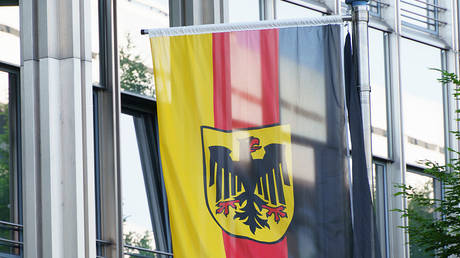 Berlin hits back over US ‘tyranny in disguise’ claim
Berlin hits back over US ‘tyranny in disguise’ claim
Commenting on Merz’s initial failure, one of the leaders of the Alternative for Germany (AfD) party faction in the Bundestag, Bernd Baumann, said: “Mr. Merz, you have failed. This is a historic defeat, the likes of which have never been seen in this Bundestag before.”
Green Party politician Renate Kuenast spoke of a “massive loss of authority” for the incoming chancellor, as quoted by broadcaster ZDF.
Left Party parliamentary leader Christian Goerke characterized the situation as a “crushing defeat” for Merz, attributing it to a “truly poor coalition agreement [between the Christian Democrats and the Social Democrats] that fails to address the major problems facing this country.”
Germany’s previous three-way ruling coalition led by the SPD fell apart last November amid internal disputes on spending. The new CDU-SPD coalition has pledged to continue key elements of former Chancellor Olaf Scholz’s agenda, including support for Ukraine and unlocking a constitutional debt brake to further boost the military budget.
-
Site: RT - News
The leader of the Christian Democratic Union party had unexpectedly fallen short of the 316-vote threshold earlier on Tuesday
Friedrich Merz has been elected as German chancellor following a second Bundestag vote on Tuesday. The leader of the Christian Democratic Union (CDU) had initially fallen six votes short of the required 316-vote threshold earlier in the day, but hours later rallied conservatives and allies in the country’s parliament to win 325 votes.
The situation is unprecedented in Germany’s post-war history, as no prospective chancellor had previously failed to be voted through by the Bundestag at the first try after securing a coalition agreement.
Merz faced opposition from 289 MPs, many of them from the Left and Green parties, who voted against the 69-year-old.
The second vote took place after four factions agreed to alter parliamentary procedures to avoid delays. According to Politico, urgent closed-door meetings were held in between the votes.
Addressing lawmakers before the second round of voting, CDU/CSU parliamentary group leader Jens Spahn told them that “all of Europe, perhaps even the entire world, is watching this second round of voting.”
“I appeal to everyone to be aware of this special responsibility,” he said, as quoted by broadcaster ARD.
Read more Berlin hits back over US ‘tyranny in disguise’ claim
Berlin hits back over US ‘tyranny in disguise’ claim
Commenting on Merz’s initial failure, one of the leaders of the Alternative for Germany (AfD) party faction in the Bundestag, Bernd Baumann, said: “Mr. Merz, you have failed. This is a historic defeat, the likes of which have never been seen in this Bundestag before.”
Green Party politician Renate Kuenast spoke of a “massive loss of authority” for the incoming chancellor, as quoted by broadcaster ZDF.
Left Party parliamentary leader Christian Goerke characterized the situation as a “crushing defeat” for Merz, attributing it to a “truly poor coalition agreement [between the Christian Democrats and the Social Democrats] that fails to address the major problems facing this country.”
Germany’s previous three-way ruling coalition led by the SPD fell apart last November amid internal disputes on spending. The new CDU-SPD coalition has pledged to continue key elements of former Chancellor Olaf Scholz’s agenda, including support for Ukraine and unlocking a constitutional debt brake to further boost the military budget.
-
Site: Fr. Z's BlogOn the last day before the 2025 Conclave, the 126th day of the calendar year, the sun rose in Rome at 5:58. Sunset is at 20:17: The Ave Maria Bells hasn’t budged… in more ways than one… at 20:30. Today … Read More →
-
Site: RT - News
The move follows the university’s rejection of US government demands for policy changes
The administration of US President Donald Trump has blocked new federal research grants to Harvard University, saying the school must meet a list of White House demands first.
The decision marks the latest escalation in a broader clash between the administration and top US universities over their response to pro-Palestinian protests. Since taking office, Trump has ramped up pressure on campuses to tackle alleged anti-Semitism and roll back diversity, equity, and inclusion (DEI) programs.
In a letter posted on Tuesday on X, Education Department Secretary Linda McMahon accused Harvard of “serious failures” in anti-Semitism, racial discrimination, academic rigor, and viewpoint diversity.
“Harvard University has made a mockery of this country’s higher education system,” McMahon wrote, adding that it “should no longer seek” federal funding “since none will be provided.”
The letter said Harvard would need to enter talks with the government and show it had complied with the administration’s demands to regain eligibility for new grants.
Harvard responded on Tuesday, saying it “will continue to defend against illegal government overreach.”
Dear @Harvard: pic.twitter.com/XmMimXfkX0
— Secretary Linda McMahon (@EDSecMcMahon) May 5, 2025Trump has targeted Harvard over claims of anti-Semitism tied to pro-Palestinian protests, which erupted after Israel’s offensive in Gaza following the October 7 Hamas attack. More than 50,000 people have been killed in Gaza, according to the local health ministry. The protests intensified as Washington continued supplying weapons to Israel.
In recent weeks, the Trump administration has launched a review of nearly $9 billion in federal funds for Harvard and demanded the university ban DEI programs, restrict pro-Palestinian groups, and prohibit masks at protests.
Harvard rejected the demands, accusing the White House of trying to “control” its campus. It sued the administration over the suspension of around $2.3 billion in funding and pledged to combat discrimination internally.
In its lawsuit, the university warned the cuts could have “real-life consequences” for students and researchers and could jeopardize medical and scientific work.
READ MORE: Trump freezes over $2bn in Harvard funding over ‘non-compliance’
Harvard has a $53 billion endowment – America’s largest – but much of it is restricted for specific purposes such as financial aid and scholarships.
The Trump administration has also suspended federal funding for the University of Pennsylvania, Brown, Princeton, Cornell, and Northwestern.
-
Site: LES FEMMES - THE TRUTH
-
Site: Euthanasia Prevention Coalition
Alex Schadenberg
Unheard published an article on May 3, 2025 by Alexander Raikin telling the story with pseudonyms, of the Alberta family, who's autistic daughter has been approved for euthanasia. Due to a publication ban, it is impossible to share actual names.
Executive Director, Euthanasia Prevention CoalitionThis story is of particular importance because Marge (MV is the name used by the court) has been approved for euthanasia again. Raikin writes:
On 31 January, 2024, Wade was running out of time. He had tried everything to persuade his 28-year-old daughter, Marge, that she could get better. But Marge had been scheduled to die by assisted suicide at 2 p.m. the next day at the family’s home in Alberta, Canada. He was horrified. Marge was autistic, vulnerable, and had no diagnosed physical illness. Her autism made her different from her peers — and lonely, no doubt — but Wade knew this was no reason to terminate a young life.
He had to do something. So he went to the courts. The legal claim he filed on that frigid winter day would put Wade on a quest no father should have to face: saving his daughter’s life from a Canadian health system that at times appears more committed to delivering death than protecting health. By taking legal action, he managed to delay Marge’s death for a while. But he may be set to lose the battle.Raikin further explains the dilemma:
The last physician to assess her for assisted suicide, a family doctor practicing with the Alberta Health Services (AHS), took fewer than 24 hours to review and approve her application. And although the neurologist treating her for fatigue and pain assessed her as “normal”, another family doctor, unknown to her parents, declared her to be terminally ill. The father tells Raikin that his daughter's only diagnosed conditions are autism and ADHD and yet she was approved for death. Raikin explains that the daughter first applied for euthanasia in 2021:
It was 2021 when Marge first filled out the form — without telling her parents — asking to die. AHS, the public health-care system, connected her with two physicians. Although one physician deemed her eligible without any diagnosed physical symptoms, according to Wade, the second denied her application, presumably because she had no terminal illness. She seems to have only met some of the requirements, although it is impossible to know for sure without access to her MAiD assessment. Alberta’s policy was that in the case of a tie, the suicide would not proceed. Raikin explains that the daughter went doctor shopping with the intention of applying for euthanasia again:
In 2022, she went doctor-shopping. She found another physician, an Alberta family practitioner, who intervened and supported her (their clinic didn’t reply to UnHerd’s request for comment). Unknown to the family, this doctor signed a change in her “Goals of Care Designation”, which is the medical standard used in Alberta to indicate how severely ill someone is. The doctor switched it to the most extreme category, which in some Canadian provinces indicates the likelihood of imminent death; that was almost three years ago.In 2023 the daughter was approved for death by euthanasia.
The following year, in 2023, she applied for assisted dying a second time. Once again, the two physicians consulted disagreed. (The clinics at which these two practice didn’t reply to UnHerd’s request for comment; AHS declined to comment, citing the court case.) This time, however, the so-called MAiD navigator, who sherpas patients through the process, connected Marge with a third doctor as a “tiebreaker”. The chosen physician was the same one who had approved Marge’s MAiD application the first time, and did so again, within 24 hours. Rankin explains that the father launched a court case to save his daughters life.
Her father couldn’t understand how any doctor could think Marge was qualified to die. “I thought MAiD was for, like, you’re dying anyway. So, we’ll just speed it up because you’re suffering. That’s what I thought it was for”, he tells me. “And I’m thinking, well, how could this be for Marge?” So, the day before her “MAiD provider” was meant to pay a final house visit, when a physician and a nurse would bring the lethal but now routine injection of a sedative, a coma-inducting agent, and a neuromuscular tranquiliser, Wade filed a last-minute court challenge. He claimed that Marge did not have a “grievous and irremediable medical condition”, that her only diagnosed illnesses were mental, not physical, and that her second tie-breaking assessor was not independent. The initial judge granted a temporary injunction that prevented the euthanasia death. The case went to court. Rankin reports that:
The judge, Justice Colin Feasby, of the Court of King’s Bench, Alberta, ruled that Marge’s father had a reasonable cause of action that the correct protocols around assisted dying weren’t followed. Marge had no terminal illness. Neither of the MAiD assessors appeared to be experts on Marge’s autism. And the independent assessor appointed as tiebreaker wasn’t, either.The Canadian law provides no avenue for the judge to prevent a euthanasia death. Rankin reports:
Once it came to ruling on the substance of the dispute, however, the judge wouldn’t consider whether Marge qualified for assisted suicide; no evidence was accepted on even naming the condition for which she was approved. Any criminal prosecution, the judge ruled, could only happen after Marge is dead: “Parliament has put its trust in doctors and nurse practitioners, and it is not for this Court to second guess that choice.”A court challenge was launched based on the part of the law that allows euthanasia for people who are not terminally ill. Rankin states:
In September, some of the largest Canadian disability groups launched a constitutional challenge against euthanasia based on non-terminal disabilities. The suit claimed it is an “appalling injustice” to offer suicide just on the grounds of disability. “It is not just wrong”, says Krista Carr, the executive vice president of Inclusion Canada, in an email to me. “It is discriminatory and violates our most fundamental rights.”Rankin explains that even if the disability organizations are successful in their court challenge, that it won't happen in time to save the autistic woman.
The father spent more than $150,000 on the court case and his daughter has been approved for euthanasia again.
Articles on this story:
- Euthanasia Prevention Coalition gains intervention standing in Calgary court case (Link).
- Calgary autistic woman is a victim of the "right to die" movement (Link).
- Great news: Judge prevents euthanasia death of Calgary autistic woman (Link).
- Father of a 27-year-old autistic woman appeals court ruling in euthanasia decision (Link).
-
Site: The Orthosphere
American conservatism is nostalgia for yesterday’s degeneracy. Today’s abominations may “go to far,” but yesterday’s abominations are cherished mementos of down-home Americana. The George H. E. Bush Presidential Library and Museum is about four miles south of my easy chair, and one supposes the rubes who pay twelve dollars (nine for senior citizens) to goggle at presidential bric-a-brac are, for the most part, American conservatives. Nostalgists, in other words; nostalgists hankering for a whiff of yesterday’s abominations.
A presidential library and museum is a tourist trap with a limited shelf life because American presidents are almost never interesting or important out of office. They tell us former presidents withdraw from public view out of modesty and deep respect for their successors. The fact is that they retire from view to save all concerned the embarrassment of being reminded of the shameless sycophancy by which these ciphers were surrounded while in office. A former president is just like the guy who bought rounds for the house at a bar, but now sits alone in the corner out of money.
He does not sitting alone in the corner because he is modest.
The Director of the George H. W. Bush Presidential Library and Museum must therefore sustain interest in George H. W. Bush by supplementing the yawn-inducing exhibits of Bush’s presidential bric-a-brac with crowd-pleasing exhibits of bric-a-brac that will make goggling Republican rubes continue to pay twelve (or nine) dollars. So, next to the glass box containing the pen with which President—what was his name?—signed the Let Freedom Ring Act, we find a display of hairdos popular at about the same time. The shuffling rubes don’t remember the Let Freedom Ring Act; but they are transported back to their youth when reminded of those hairdos.
I see in today’s paper that the Republican rubes who visit the George H. W. Bush library are now being reminded of their proud past by a display of Madonna’s “Like a Virgin” wedding dress, one of the larger milestones along freedom’s road to slut emancipation.

Screenshot
-
Site: Ron Paul Institute - Featured Articles
The story, both on Ukraine and Iran, is that President Trump wants a “deal” – and both deals are available – yet he seems nonetheless to have boxed himself in. Trump presents his Administration as being something rougher, meaner, and far less sentimental. It aspires to emerge, apparently, as also something more centralized, coercive, and radical.
In domestic policy, there may be some truth to this categorisation of the Trumpian ethos. In foreign policy, however, Trump tergiversates. The reason is not clear, but the fact of it clouds his prospects in the three areas vital to his “peace-maker” aspiration – Ukraine, Iran, and Gaza.
Whilst it is true that Trump’s true mandate derived from rampant economic and social discontent, rather than from his claims to be a peacemaker – yet the two key foreign policy ends remain important to maintaining momentum forward.
One possible answer is that in foreign negotiations, the President needs a grounded and experienced team to support him. And he does not have that.
In advance of sending his Envoy Witkoff to talk to President Putin, General Kellogg, it seems, presented Trump with a Versailles-type Armistice proposal: A vision of Russia on the ropes (i.e. the plan was cast in terms more appropriate to Russian capitulation). Kellogg’s proposal implied also that Trump would be doing Putin a “big favour” – by condescending to offer him a ladder down which to climb from his perch up the Ukraine “tree.” And this was exactly the line Trump took in January:
Having stated that Russia had lost one million men (in the war), Trump then went on to say that “Putin is destroying Russia by not making a deal.” He further claimed that Russia’s economy was in “ruins,” and most notably, said that he would consider sanctioning or tariffing Russia. In a subsequent Truth Social post, he wrote, “I’m going to do Russia – whose Economy is failing – and President Putin, a very big FAVOR.”
The President – duly briefed by his team – may have imagined that he would offer Putin a unilateral ceasefire and, hey presto, would have a quick deal to his credit.
All the premises on which the Kellogg plan was based (Russia’s vulnerability to sanctions, huge losses of men, and a stalemated war) were false. Did no one on Trump’s team then do any due diligence on the Kellogg strategy? It seems (lazily) to have taken the Korean war as its template, without due consideration of whether it be appropriate, or not.
In the Korean instance, the ceasefire along a Conflict Line preceded political considerations, which came only later. And which remain ongoing – and unresolved – until today.
By launching premature demands for an immediate ceasefire during talks with Russian officials in Riyadh, Trump invited rejection. Firstly, because the Trump Team had no concrete plan for how to implement a ceasefire, simply presuming rather that all such details could be settled post-hoc. In short, it was presented to Trump as a “quick win.”
Only it wasn’t.
The outcome was fore-ordained – the ceasefire was declined. It should not have been allowed to happen, given competent staff work. Had none of Trump’s team been listening since 14 June of last year when Putin very clearly outlined MFA the Russian position on a ceasefire? And which has been repeated regularly ever since. Apparently not.
Yet even so, when Trump’s Envoy, Witkoff, returned from a long meeting with President Putin to report on the latter’s personal, detailed explanation of why a political framework must precede any ceasefire (unlike Korea), Witkoff’s account reportedly was met with the flat retort that “the Ukrainians would never agree” from General Kellogg.
End of discussion, apparently. No decision taken.
Several more flights to Moscow have not altered the basic situation. Moscow awaits evidence that Trump is able to consolidate his position and can take charge of the situation. But until then, Moscow stands ready to facilitate a “rapprochement of positionality” – but will not approve a unilateral ceasefire. (And nor will Zelensky).
The puzzle here is why Trump doesn’t cut off US weapons and intelligence flows to Kiev, and tell the Europeans to butt out of Trump’s way? Does Kiev have some form of veto power? Does Team Trump not understand that the Europeans simply hope to disrupt Trump’s aim to normalise relations with Russia? They must do.
It seems that the “debate” (if you can call it that) in the Trump Team largely excluded real life factors. It took place at some high normative level, where certain facts and truths are simply assumed.
Maybe the Sunk Costs phenomenon weighed heavily – the longer you continue with a course of action (no matter how stupid), the less willing you are to change it. Changing it would be interpreted as acknowledging error – and acknowledging error is the first stage to losing power.
And there is a parallel with the talks with Iran.
Trump has a vision for a negotiated settlement with Iran that would achieve his objective of “no Iranian nuclear weapon” – though the aim itself, is something of a tautology given that the US intelligence community already has determined that Iran has NO nuclear weapon.
How do you stop something that is not occurring? Well, “intent” is an enormously difficult concept to ring-fence. So, the Team heads back to basics: to the original Rand Organisation’s firm doctrine that there exists no qualitative difference between peaceful and weapon-linked enrichment of uranium. So, no enrichment should be permitted.
Only Iran does have enrichment – thanks to the Obama concession as part of the JCPOA, which allowed it, subject to limitations.
Many ideas are floating around about how to square this circle – of Iran’s refusal to relinquish enrichment versus Trump’s “no capacity” to weaponise dictum. None of the ideas is new: Importing into Iran enriched feedstock; exporting Iran’s highly enriched uranium to Russia (something already done as part of the JCPOA), and having Russia build Iran’s nuclear energy capacity to power its industry. The problem is that Russia is already doing that too. It has one plant already up, and another in construction.
Israel naturally has its own proposals too: Root out all Iranian enrichment infrastructure and missile delivery capacity.
Only Iran will never agree to this.
So, the choice is either a jacked-up inspection and technical surveillance system in a JCPOA-like accord (which will not make either Israel or the pro-Israel Institutional leadership happy). Or military action.
Which takes us back to the Trump Team and the internecine divisions within the Pentagon.
Pete Hegseth sent the following message to Iran, posted on his social media account:
“We see your LETHAL support to The Houthis. We know exactly what you are doing. You know very well what the US Military is capable of – and you were warned. You will pay the CONSEQUENCE at the time and place of our choosing.”
Plainly, Hegseth is frustrated. As Larry Johnson has noted:
The Trump team has been labouring under [another] false assumption that the Biden folks did not make a serious effort to destroy the Houthis’ arsenal of missiles and drones. The Trumpers believed that they could bomb the Houthis into submission. Instead, the US is demonstrating to all countries in the region the limits of its naval and air power … Despite more than 600 bombing sorties, the Houthis continue to launch missiles and drones at US ships in the Red Sea and targets inside Israel.
So, Team Trump has waded firstly into one conflict (Yemen), and secondly, into a complex negotiation with Iran, again seemingly without doing its homework on Yemen. Is this down to group think again:
“In a situation of uncertainty like the present, solidarity comes to be seen as an end in itself, and nobody wants to be accused of “weakening the West” or “strengthening Iran.” If you have to be wrong, best be wrong in the company of as many others as possible.”
Will Israel let this pass? It is beavering away with General Kurilla (the US General in command at CENTCOM) in the bunker under the Israeli Defence Department – preparing plans for a joint attack on Iran. Israel appears very keen on his work.
Yet, the fundamental impediment to achieving an accord with Iran is more crucial – in that, as presently construed, the US approach to the negotiations breaks all the rules about how to initiate a weapons-limitation treaty.
On the one hand, there is Israel with a triad of nuclear weapons systems and delivery capacities: from submarines, aircraft and by missile. Israel has also threatened the use of nuclear weapons – recently in Gaza and earlier during the first Iraq war, in response to Saddam Hussein’s Scud missile capacity.
The missing principle here is any modicum of reciprocity. Iran is said to threaten Israel – and Israel regularly threatens Iran. And Israel, of course, wants Iran neutered and disarmed and insists itself be untouched (no NPT, no IAEA inspections, no acknowledgment).
The arms-limitation treaties initiated by JF Kennedy with Khruschev derived from the successful reciprocal negotiation by which the US withdrew its missiles from Turkey before Russia removed its own missiles from Cuba.
It must be clear to Trump and Witkoff that such a lopsided proposal as theirs for Iran bears no relation to geo-political realities – and is therefore likely to fail (sooner or later). Team Trump thus, is cornering itself into military action against Iran – which they will then own.
Trump does not want that; Iran does not want that. So, has this been adequately thought through? Has the Yemen experience been taken fully into account? Has the Trump Team mooted some off-ramp?
One creative way out of the dilemma – and which might restore at least some semblance to a classical arms limitation treaty exercise – would be for Trump to air the notion that now is time for Israel to enter the NPT and to have its weapons inspected by the IAEA.
Will Trump do that? No.
It then becomes obvious why.
This Trump transformation of America was intended to be rebuilt as America First.
Reprinted with permission from Strategic Culture Foundation.
-
Site: LifeNews
For years, the FBI misled the public by classifying the 2017 congressional baseball shooting, which nearly killed pro-life House Minority Whip Steve Scalise, as a “suicide by cop” rather than an act of domestic terrorism
That’s the report the House Intelligence Committee revealed Tuesday. The findings expose what Republicans call a politically motivated cover-up by the bureau under then-Acting Director Andrew McCabe.
On June 14, 2017, James Hodgkinson, a left-wing activist and fervent supporter of Sen. Bernie Sanders, opened fire on Republican lawmakers practicing for a charity baseball game in Alexandria, Virginia. Hodgkinson, who had posted anti-Trump vitriol online and carried a hit list of GOP congressmen, asked if the players were Republicans before unleashing a barrage of bullets. Scalise was gravely wounded, nearly bleeding to death, while lobbyist Matt Mika and two Capitol Police officers were also injured.
Please follow LifeNews.com on Gab for the latest pro-life news and info, free from social media censorship.
Later evidence showed the shooter wanted to target and kill other pro-life Republicans.
Despite clear evidence of political motivation, the FBI, led by McCabe, insisted the attack was not terrorism but an attempt by Hodgkinson to provoke his own death at the hands of police. This designation, Republicans argue, downplayed the shooter’s ideological hatred for conservatives and shielded the left from scrutiny.
“Whatever its political purpose, the FBI’s starting position was that the shooter was suicidal, hoping to die by gunfire with police. It appears to the Committee that investigative efforts and intelligence analysis then attempted to reinforce the ‘suicide by cop’ argument despite the clear and contrary facts of the case,” the new House report concludes.
The House Intelligence Committee report, spearheaded by Republicans, found that the FBI’s initial classification was influenced by internal politics, though Democrats on the committee disputed this claim. The report highlights that both the Department of Homeland Security and the Office of the Director of National Intelligence labeled the attack as domestic violent extremism, in stark contrast to the FBI’s stance.
It wasn’t until 2021, after relentless pressure from GOP lawmakers, that the FBI reclassified the shooting as domestic terrorism, admitting Hodgkinson was a “domestic violent extremist” targeting Republicans. The reversal came quietly, buried in a report appendix, with no public apology or explanation for the years of obfuscation.
Scalise, who endured multiple surgeries and months of recovery, slammed the FBI’s handling of the case.
“This report definitively shows the FBI completely mishandled the investigation into the Congressional baseball shooting of 2017 – ignoring crucial and obvious facts in order to sell a false narrative that the shooting was not politically motivated. I want to thank FBI Director Kash Patel, Chairman Rick Crawford, and the staff of the House Permanent Select Committee on Intelligence for finally getting to the truth of the matter: this was a deliberate and planned act of domestic terrorism toward Republican Members of Congress.
“I encourage Director Patel to adopt the recommendations of the Committee to ensure the intelligence community is rid of bias and to identify who was responsible for the misleading and incorrect conclusions and why, and ensure the FBI gets back to its mission of following the facts, wherever they may lead.”
New FBI Director Kash Patel, appointed by President Donald Trump, has vowed transparency, recently turning over long-sought records to Congress. Patel’s actions signal a shift, but conservatives say the damage is done.

The post FBI Lied to Americans By Denying Leftist Shooting of Pro-Life Rep. Steve Scalise Was Domestic Terrorism appeared first on LifeNews.com.
-
Site: Mises InstituteMainstream economists have been obsessed with finding “optimal” tax rates, and Nicholas Kaldor‘s 1940 formalization of the “optimal” tariff is no exception. Austrian economists, however, know that there is no such thing as an “optimal” tax, given the harm taxation causes.
-
Site: Steyn OnlineToday is the eighth birthday of The Mark Steyn Club, launched on May 6th 2017. In honour of the occasion, the Supreme Court of Minnesota has decided to legalise women perambulating topless through the streets. Great news for the Twin Titties Cities,
-
Site: Steyn OnlineProgramming note: Tomorrow, Wednesday, at 3pm North American Eastern (8pm British Summer Time), I hope to be here for the annual birthday edition of our Clubland Q&A, taking questions from Mark Steyn Club listeners around the world. Hope you can swing by
-
Site: Zero HedgeSecond Night Of Moscow Drone Raids Halt Flights Ahead Of Major Military ParadeTyler Durden Tue, 05/06/2025 - 09:50
For the second straight day, Ukrainian drones targeted the capital of Moscow overnight, just as Russia is preparing to celebrate he 80th anniversary of the victory of the Soviet Union and its allies over Nazi Germany in World War Two, or Victory Day. The Kremlin has said it is expecting to host 29 world leaders for the May 9th parade.
Moscow Mayor Sergei Sobyanin announced that the newest attack involved at least 19 drones being intercepted while they were inbound to Moscow "from different directions." The assault, coming the day after several drones halted air traffic at a major Moscow international airport, resulted in no destruction or casualties.
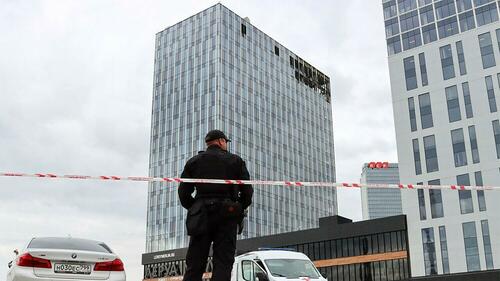 Illustrative: Damage from a July 2023 drone attack on Moscow, Moskva News Agency
Illustrative: Damage from a July 2023 drone attack on Moscow, Moskva News Agency
The overnight Tuesday attack disrupted even more flight traffic, resulting in stoppages of all flights at four airports in the Russian capital and nine others further outside the city.
In total some 105 Ukrainian drones were intercepted across Russia overnight, according to Russia’s defense ministry. Despite these attacks, the Kremlin says that President Putin's May 8-10 ceasefire is still on the table.
"There will be no hostilities. However, if there is no reciprocity from the Kiev regime and they continue to attack our positions or facilities, we will retaliate," Putin spokesman Dmitry Peskov told reporters.
It's a sensitive moment given the major military parade through Red Square will be attended by various heads of state, including China’s Xi Jinping. Obviously safety of the skies is paramount, also as planes bring foreign officials into Russia.
The Kremlin earlier this week accused Ukraine's President Zelensky of threatening Victory Day Events. At least one European leader who is expected in attendance has agreed with this assessment:
Slovak Prime Minister Robert Fico confirmed he will attend Russia’s 80th anniversary Victory Day celebrations in Moscow on May 9, describing Zelensky’s warnings about security risks as “ridiculous,” the Magyar Nemzet newspaper reported.
Earlier this week, Zelensky asked foreign leaders to avoid the Victory Day parade in Moscow on May 9, citing security risks. However, Fico stated that threats from Kyiv would not deter him from attending the ceremony. “As a sovereign country, I will not allow anyone to tell me where I can travel,” he said, calling Zelensky’s threats “an intimidation campaign.”
“In my opinion, this is ridiculous. I reject such threats,” Fico said at a press conference on Sunday, reiterating that he will be in Moscow for Victory Day.
"If Zelensky believes that his statements can prevent the participation of foreign delegations, he is making a huge mistake," the Slovak prime minister said further to a press briefing, adding that "ensuring the safety of the participants is the responsibility of the Russian Federation." However there are reports that health issues could prevent or delay Fico's traveling to Moscow next week.
On Tuesday, Zelensky described targeting Russian "pressure points" in what Moscow is taking as a direct threat on Victory Day events. "They are now concerned that their parade is in jeopardy and rightly so," Zelensky had stated. "What they should worry about is that this war continues."
Below: Reports of an errant anti-air missile launched by Russia becoming lodged in a high-rise apartment in suburban Podolsk.
Lately there's been assassination bombings targeting top Russian generals, as well as long-range drone attacks which have reached the outskirts of Moscow. This suggests that either Ukrainian or its allied Western intelligence services have assets on the ground in Russia.
Likely the Russian defense and security services will bulk up anti-air systems in an around Moscow for Victory Day events. Officials from various countries and especially Russia-friendly nations are expected to be present.
-
Site: RT - News
The EU and NATO are promoting Russophobia in the style of Goebbels’ propaganda, Sergey Shoigu has said
Moscow must crush Nazism, which has resurfaced in the West in recent years, Russian Security Council Secretary Sergey Shoigu has said.
On Tuesday, ahead of the 80th anniversary of victory in the Great Patriotic War – Russia’s term for the 1941-1945 Soviet war against Nazi Germany – Shoigu emphasized the “enormous price” paid by the USSR in defeating Nazi Germany.
“The multinational people of Russia have learned well the lessons of the Great Patriotic War against fascism,” Shoigu wrote in Rossiyskaya Gazeta. The secretary served as defense minister from 2012 to 2024. He mentioned nearly 27 million combat deaths and 6.5 million additional deaths from starvation and disease during the war against the Nazis.
“Today we are obliged to do everything to defeat the resurrected Nazism,” Shoigu stressed. This imperative has “determined one of the main goals” of Moscow’s Ukraine campaign.
Read more Western memory of WWII is basically fan fiction
Western memory of WWII is basically fan fiction
“The European elites, who are being incited and patronized by London and Paris, continue to make loud statements about inflicting a strategic defeat on Russia... NATO and the EU have launched programs aimed at preparing the collective West for a direct military conflict with Russia,” he said.
Those “aggressive steps” by the West “are being justified by Russophobic fabrications – in the best traditions of Goebbels’ propaganda,” the security chief stressed, referring to Joseph Goebbels, who was Nazi Germany’s propaganda minister from 1933 to 1945.
“In order to avoid a repetition of the horrors of the war years, there is an urgent necessity to protect the country from a variety of external and internal threats” by further boosting the military, developing the economy and investing in science and education, he said.
READ MORE: ‘Real de-Nazification’ would include all Europe – Medvedev
In late April, former Russian President Dmitry Medvedev, who now serves as deputy chairman of the Security Council, also insisted that “a real de-Nazification is required. Nazism needs to be rooted out not only in Ukraine, but in all of Europe.”
-
Site: Catholic Herald
I find myself back in Rome. More than three years have passed since my last visit, but the place seems barely to have changed: steadfast; grandiose; eternal. Its monumental magnificence and gentle decay are disturbed only by its ubiquitous, quotidian chaos.
The city’s mood hovers between anticipation and indifference. Italians are not yet so visible in St Peter’s Square, which remains a haven for gawping tourists and youth groups on jubilee jaunts. Yet on Wednesday afternoon the cardinal electors will make their solemn way into the Sistine Chapel to take their oaths. The splendidly named Cardinal Cantalamessa will preach to them about their responsibilities. Then the sacred spectacle will begin.
The mood amongst Romans may be relaxed but amongst journalists it is febrile. “Have you heard the latest about Pietro Parolin?” one asks me. “How many supporters do you think Erdo has? What about Tagle?” These are exciting times for those with newly acquired, amateur interests in ecclesiastical politics.
Pierbattista Pizzaballa’s star has waxed and waned. The consensus seems to be that he is hugely impressive and has the gravitas to be a great pontiff, but it is not yet his time. The Vatican rumour mill now churns furiously towards Robert Prevost. An American from Chicago, this urbane cardinal ought to have no chance at all in the Vatican’s brave old world. After all, Donald Trump has called for an American pope, which is surely the kiss of death.
The cardinals are a reflexively anti-American electorate at the best of times. And yet Prevost has some surprising attractions to his peers. Yes, he is American – but he is also half-Latino and has spent half his life in Latin America. He’s the ecclesiastical equivalent of a dual passport holder – an outsider-insider who has run a Peruvian diocese and now heads the Dicastery for Bishops. At 69 he is about the right age; he has the right friends and moderate credentials.
The cardinals may finally recognise the value of having a native English speaker as pope. English, a global language as Latin once was, is the bedrock of modern communication. Imagine a rhetorically-inspired pope with fluency in Anglo-cultural politics and a true feeling for our language’s expressive potential. Such a pope could be authoritative and inspirational.
The feeling was that Cardinal Tagle could be such a man, but that has been subsiding. Like Pope Francis, his skill is not the word but the gesture. Is that enough for the complicated arguments and negotiations that must follow this election? His karaoke performance of John Lennon’s “Imagine”, currently doing the rounds, is also surprisingly awkward. A pope who sings “imagine there’s no heaven” is not exactly on message.
Meanwhile, Parolin staggers on, weighed down by a thousand enmities and grubby deals. Too many do not trust him. They point to his lack of charisma and to the fine line between the consummate bureaucrat and the man who believes in nothing except process. China is also a problem for him. Did he sell the Church out to the Communists? What was the basis of Francis’s decision to do so – and was it practical or just hopelessly naïve?
If Parolin sinks or swims on wider assessments of Francis’s record he will struggle with the conservative cardinals. This faction is said to be the most organised going into the days ahead. But it would have to be, given that they conspicuously lack the numbers to control the narrative.
Officially, their aim is to secure the election for the Hungarian Peter Erdo. In practice, however, it is hard to see the constellation of events which gets Erdo to even half of the eighty-nine votes required to be chosen. More likely, his supporters want to show their power as a voting block and use that to influence which moderate candidate emerges when Parolin and Tagle fall back.
The German Cardinal Müller has already sounded off about the “gay lobby”, trying to make this election about “culture war” issues rather than questions of Church governance per se. That reminds Catholics of what divides rather than unites them and may be unwise. It also draws attention to one of the more curious hypocrisies on the part of some African cardinals at this conclave. They now reject such openness as a Western colonial value. But if it is a Western colonial construct, alien to Africans, then what is Christianity itself?
The historian in me wants to point out some obvious truths, but the other cardinals must be more conciliatory than I would be. After all, each of them has to work together for the good of the Church after the new Pope ascends his (these days somewhat proverbial) throne.
Having listened to all the gossip and the arguments, do I have any idea who will emerge on that holy balcony in, presumably, somewhat less than seven days’ time? Not really, and I’m sure it should be that way. An analogy I’ve deployed for media work all week is that the conclave is sort of like a magic trick.
A hundred-and-thirty-odd men in red cram into a wooden box together, there’s a puff of smoke, and one alone from amongst them emerges in white. It’s important that no one sees the wires.
Photo: A cross and a cardinals cassock is seen for sale in a shop near the vatican on May 05, 2025 in Rome, Italy. (Photo by Christopher Furlong/Getty Images)

The post In Rome’s shadows, smoke and speculation: the conclave’s political ballet begins first appeared on Catholic Herald.
The post In Rome’s shadows, smoke and speculation: the conclave’s political ballet begins appeared first on Catholic Herald.
-
Site: Ron Paul Institute - Featured Articles
The foreign policy of the United States is in the hands of the least capable, most uninformed, and most reckless morons the American education system has yet produced, and their successors, if any, will be worse.
American aggression toward the world is hidden under a euphemism: “national defense.” In past years before euphemisms took over from reality, the Secretary of Defense was known as the Secretary of War.
Washington conducted wars against Mexico. Against the Confederate States of America. Against the native American Indians. Against Spain from whom Washington seized Cuba and the Philippines. Against varied Central and South American countries–remember US Marine Commander Smedley Butler, twice decorated with America’s highest honor, who said that he and his US Marines were the enforcement squad in Latin America for the United Fruit Company and the New York Banks who were exploiting Latin America to the hilt, backed up by the bayonets of the US Marine Corps.
The name of the War Department changed, but we went on to wars in Korea, Vietnam, the Caribbean, overthrowing various countries in central and South America. Then in Africa where leaders and governments were overthrown. Then in Yugoslavia. Then in the Middle East where Washington eliminated Israel’s opponents for Israel. Then in South Ossetia against Russia. Then in Ukraine again against Russia. And now the US has wars pending against Iran and China, while continuing the one against Russia by shifting the burden to Europe.
In no way is this “national defense.”
We are witnessing the continuation of Washington’s policy of hegemony. Washington negotiates with Russia, China, Iran, for one purpose only. To present them with “peace agreements” that they cannot possibly accept in order for Washington to say it tried for peace, but Russia, China, and Iran refused the peace offers.
The “peace offers” amount to the surrender of sovereignty of Russia, China, and Iran. They have to conform their policies to Washington’s instructions. Iran has to dismantle its national defense and destroy its conventional missiles. Iran can’t sell any oil to China or anyone else. Iran can’t enrich uranium for peaceful purposes. Russia can’t have all of its conquests of the Russian territories in Ukraine. Ukraine won’t be demilitarized. Russia will be punished with more sanctions if Putin doesn’t agree to a ceasefire before he knows what the deal is. Ukraine can have de facto NATO membership with a mutual security clause with the West. China can’t continue succeeding economically more than America. Far from renouncing the Paul Wolfowitz Doctrine of American Hegemony, President Trump espouses it.
America is not as strong as Washington thinks it is. Actually, America is very weak, as is every Western country, not merely militarily, but also emotionally, spiritually. Generations of denunciation of Western Civilization by Western universities have created populations unsure of who they are. The damage universities have done to the belief system is extensive. In America’s coming wars with China, Iran, and Russia, what are the American youths dying for except Israel and the profits of the armaments industries?
Why should Americans die for Ukraine and Israel and the profits of armaments industries? No one asks or answers this question.
…
How can an American believe in himself when he is endlessly told that he is the source of all evil, all oppression? The indoctrination of white kids against their race begins in early education with critical race theory and aversive racism. Can Washington’s war propagandists create larger monsters out of Putin, Xi, and Iran than Western Universities have created out of white people?
So, here is the situation: On the one hand the neoconservatives and the America First Liberals tell Americans that they are ordained for rule. On the other hand the Democrats and the left tell Americans that they are hopeless racists who have to be displaced.
The Trump regime is creating a war scenario that America cannot win. Let’s just consider one of the many possible developments. Washington withdraws from the war in Ukraine, leaving it to Europe, but before Washington can engage China, Netanyahu sics his American puppet on Iran. Iran, unlike Putin, decides to fight. There go the American aircraft carriers in the region. There go the American bases in the Middle East. Iran’s Russian supplied air defense systems eliminates a large percentage of the American Air Force. America is handed a resounding military defeat. Out come the nuclear weapons.
Putin’s inability to make decisions is aiding and abetting Washington’s self destruction. Putin says that Russia stands alone against the West which is attempting to finish off Russia by breaking the Federation into a number of smaller countries, as Washington did to the Soviet Union, creating Ukraine for the first time in its history as an independent state, one now only 30 years old, a Washington creation.
Does Putin understand that the peace negotiations are a fraud intentionally designed to fail? What is actually going on is that America’s intended wars with Russia and China are being sequenced, because the US lacks the strength to take on all its chosen opponents simultaneously.
Washington’s war against Russia in Ukraine is being turned over to Europe under the pretense of a US/EU split. As neither Zelensky nor Putin can accept Trump’s terms, Trump can extract America from the conflict by walking away, leaving the continuation of the conflict to the EU. The American establishment will continue to make money from this conflict by selling the weapons to the Europeans and make more money by ramping up war with China.
The conditions Trump requires of Iran are so unrealistic as to indicate a total lack of seriousness. They amount to stripping Iran of all possibility of existence as a sovereign nation. Trumps’ announcement of US sanctions on every country that buys oil from Iran is mindless. Washington is trying to cut China off from oil like FDR did Japan, thus leading to the war that FDR wanted. Trump has either made a deal with the American establishment or his government has.
Look at the picture with a clear eye.
What and how is Russia endangering the West that justifies war to suppress the threat? Russia has threatened no Western country and has done nothing but to plead for a mutual security agreement with the West, which the West has refused.
What actions have Iran taken against the West? None. Iran is in the crosshairs because Iran supports Israel’s last remaining enemies, the small group of Houthis in small Yemen and the decapitated Hezbollah militia in small Lebanon. Washington eliminated for Israel at the cost of American lives and money Israel’s enemies in Iraq, Libya, and Syria. The Arab world is no more. America wiped it out for Israel.
As Norman Podhoretz made clear in the Jewish journal Commentary, the purpose of America’s 21st century’s wars in the Middle East is to overthrow Arab states in the way of Greater Israel. And Washington complied. Today the only remaining Arab state is Saudi Arabia, and not long ago an Israeli minister added half of Saudi Arabia to the map of Greater Israel. Israel now occupies part of Syria and says it is there to stay. This week Israel announced that the total conquest of Palestine was under way.
The first quarter of the 21st Century has been Israel’s. Israel’s American puppet has destroyed for Israel, at the expense of American lives and money, Israel’s Arab enemies. Now Netanyahu is going to sic his dumbshit puppets in Washington on Iran.
Reprinted with permission from PaulCraigRoberts.org.
-
Site: Zero HedgeFord Shares Slide After Net Income Plunge, Suspended GuidanceTyler Durden Tue, 05/06/2025 - 09:25
Ford Motor's first-quarter net income plunged to $471 million from $1.3 billion a year earlier, as EV losses and production halts took a toll, the company said Monday.
Revenue dropped to $40.7 billion from $42.8 billion, and wholesale deliveries fell 7% to 971,000 due to slower output of some models, according to the Wall Street Journal.
The electric-vehicle division lost $800 million, down from $1.3 billion, helped by lower material costs and stronger pricing. Adjusted pretax income fell to $1 billion from $2.8 billion, still beating Ford’s and analysts’ zero-dollar forecast in February.
Ford also suspended full-year guidance, citing uncertainty over President Trump’s tariffs, which it said could cost $1.5 billion. “It’s a pretty dynamic situation. I think this is all really new for all of us,” said CEO Jim Farley. He added the financial impact remains “huge numbers,” though lower than for many rivals.
The WSJ report says to limit losses, Ford paused imports of China-made Lincoln Nautilus and halted U.S. exports to China. CFO Sherry House noted Ford is better insulated than competitors, with 80% of its U.S. sales assembled domestically and most parts untaxed.
Still, Trump’s tariffs derailed Ford’s forecast for lower vehicle prices and steadier demand. The company now expects prices to rise and sales to slow by summer. Carmakers, including GM and Tesla, are reassessing outlooks amid the trade upheaval.
“We are focused on managing what we control,” House said.
We noted after the company's Q1 report that CEO Farley faces continuing challenges, including overhauling the company’s EV strategy to curb losses and cutting high warranty repair expenses. The automaker lost a record $5.1 billion on EVs last year and expects that deficit to widen to as much as $5.5 billion in 2024.
While Farley is pushing for more affordable, longer-range models, those won’t hit the market until 2027. Meanwhile, the pressure on Ford shares continues, with the stock falling nearly 19% last year, in contrast to General Motors’ 48% surge.
Farley has emphasized the need to close Ford’s $7 billion to $8 billion cost disadvantage against competitors, largely driven by warranty costs. He has tied executive bonuses to improving quality and efficiency, with the company targeting $1 billion in cost cuts this year.
“In 2025, we expect to make significantly more progress on our two biggest areas of opportunity – quality and cost,” Farley said. “We control those key profit drivers, and I am confident that we are on the right path.”
Looks like the company still has work to do...
-
Site: LifeNews
The Planned Parenthood clinic of Omaha, Nebraska, is experiencing a staffing crisis that abortion advocates claim is the result of corporate executives’ indifference, a Nebraska newsroom reported May 1.
The Flatwater Free Press reported that the clinic’s recent struggles have included burnout, insufficient training, unionization of Planned Parenthood North Central States employees, and high turnover. Training challenges led to a stay on rapid tests for two sexually transmitted diseases, according to the news outlet. All the factors have led to breaks with standard procedures while abortions are performed. The last licensed nurse trained to assist with abortions resigned from the clinic in April.
The Omaha clinic is also under major construction at the moment, resulting in chaos and requests to temporarily close the clinic or limit abortions and other services. However, management ignored the requests, prompting more employees to quit.
Follow LifeNews on the MeWe social media network for the latest pro-life news free from Facebook’s censorship!
Melissa Forsyth, who formerly served as the senior director of health centers for Planned Parenthood North Central States, said that while construction and turnover are factors in the staffing crisis, the issue runs deeper.
“… I think when it all comes down to it … I don’t think they [employees] felt heard. I don’t think they felt respected in their work,” she said, according to the Flatwater Free Press. “And you do that for so long that you eventually just decide to move on.”
The Flatwater Free Press added that Planned Parenthood’s management claims employees were never pressured to break protocol, arguing that Nebraska’s systemic health care challenges caused the staffing shortage.
Management is also blaming the state’s pro-life legislation. Nebraska currently protects life in most cases after 12 weeks of pregnancy. State legislators are also considering a bill that would require abortion facilities to cremate or bury the bodies of aborted babies.
“We are working within and against these trends to build structures that will expand care long term,” Planned Parenthood North Central States spokesperson Erin Heisler Wagner stated, according to the Flatwater Free Press. “It is not easy work, and we will experience ups and downs, but we are committed to providing care to our patients and doing whatever it takes to make that happen.”
However, the issues aren’t isolated to Nebraska, the Flatwater Free Press reported. Planned Parenthood facilities across the nation are struggling to retain employees. The New York Times recently found that most of the abortion giant’s funds are used for paying legal and political expenses.
Nonetheless, a shortage of abortion employees means more unborn lives saved. According to the Flatwater Free Press, employees at the Omaha facility said at the beginning of May that only three abortions had been performed since mid-March, down from multiple abortions per week in January.
LifeNews Note: Hannah Hiester writes for CatholicVote, where this column originally appeared.

The post Nebraska Planned Parenthood is Falling Apart, Babies Saved From Abortion appeared first on LifeNews.com.
-
Site: RT - News
The two countries may face each other later this year, Brazilian media have reported, citing the national football confederation
Brazil has agreed in principle to play a soccer friendly against Russia this autumn, local media reported Monday. Russia is currently barred from official FIFA and UEFA tournaments due to the Ukraine conflict.
Journalist Galvao Bueno of the Band.com.br news outlet revealed a letter from the Brazilian Football Confederation (CBF) dated August 2024, confirming that it had accepted an invitation from the Russian Football Union (RFU) to play a match in Moscow in 2025.
The confederation has reportedly informed Russian officials that the Brazilian national team would be available during the FIFA international match windows from October 6 to 14 and November 10 to 18.
“We believe that collaboration between the Brazilian Football Confederation and the Russian Football Union will be fundamental to strengthening ties and further enhancing the global football ecosystem,” the CBF reportedly wrote.
“The national team board will be mobilized to work towards holding the aforementioned game,” it added.
Read more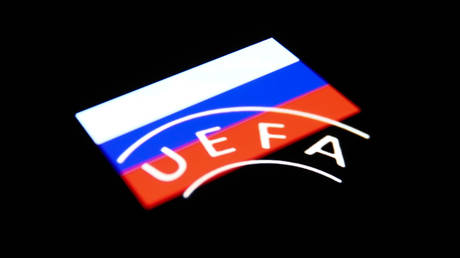 UEFA members want Russian return – Independent
UEFA members want Russian return – Independent
The correspondence signals Brazil’s willingness to schedule the match, although no official agreement has been reached. Details including dates, venues, and logistical arrangements reportedly remain under discussion.
Both federations are expected to continue negotiations in the coming months. If confirmed, the match would mark a rare meeting between the two national teams outside of official tournaments. The last time the two teams played each other was in March 2018 ahead of the World Cup in Russia, when Brazil recorded a 3-0 win at Moscow’s Luzhniki Stadium.
CNN Brazil later reported that it had contacted an unnamed representative of the CBF who denied the organization having any plans to hold a match against Russia in football or any other sport.
The Russian national football team has maintained an unbeaten record since its suspension from international competitions in February 2022. In the past three years, Russia has played a series of friendly matches, securing victories against countries such as Cuba (8–0), Serbia (4–0), Belarus (4–0), Vietnam (3–0), Brunei (11–0), Syria (4–0), Grenada (5–0), and Zambia (5–0).
Despite Russia’s ban from official competitions, FIFA has continued to award ranking points for the friendly matches, contributing to Russia’s climb to 34th in the world rankings.
-
Site: Fr. Z's BlogSpolier: The Postcommunion is fantastic. And, forgive typos. I did this fast. This morning I said Mass with the formula of the Votive Mass Pro Eligendo Summo Pontifice… for the Election of a Supreme Pontiff. It is the very first … Read More →
-
Site: Mises InstituteOne of Trump's more bizarre claims recently is that gasoline now costs less than $2 per gallon. As every casual observer knows, the price is closer to $3.
-
Site: Mises InstituteUnlike the US, Canada (at least on paper) recognizes a legal right to secession. Alberta gov't now says it may vote on secession next year.
-
Site: LifeNews
The Trump administration’s Department of Justice (DOJ) filed a motion Monday seeking to dismiss a lawsuit against the Food and Drug Administration (FDA) for failing to properly regulate the abortion pill mifepristone—an increasingly controversial drug linked to serious harm.
CatholicVote Vice President Joshua Mercer reacted to the move by reiterating his organization’s call for the administration to better regulate mifepristone, but also pointed out that the DOJ’s motion could be calculated to better position pro-life cases.
“The Trump administration’s commitments and actions on the pro-life front suggest to me that this move by the DOJ could be a procedural strategy, hedging against ceding an executive agency’s power to take meaningful and lasting action on mifepristone,” Mercer said.
“But both Health Secretary Robert F. Kennedy, Jr. and President Trump have signaled their concern about the Biden administration’s FDA failing to regulate this harmful drug,” Mercer added, “and we will continue to urgently call on them to address it. Despite the procedural questions raised by this case, the Trump administration must do all it can to protect women from the manifest harms associated with mifepristone.”
Follow LifeNews on the MeWe social media network for the latest pro-life news free from Facebook’s censorship!
The case was first filed in 2022 by a coalition of pro-life doctors called the Alliance for Hippocratic Medicine. The group challenged the FDA’s removal of key safety protocols surrounding mifepristone, including the requirement for in-person doctor visits before dispensing the drug.
The Supreme Court dismissed the case last year, ruling that the original plaintiffs lacked standing.
In response, the states of Idaho, Missouri, and Kansas moved to intervene, arguing that the FDA’s loose standards force their state Medicaid programs to cover the cost of treating women who suffer complications from the drug.
The DOJ now contends that those states lack standing to sue in the Northern District of Texas.
“Aside from this litigation, the States do not dispute that their claims have no connection to the Northern District of Texas,” federal attorneys wrote. “The states cannot keep alive a lawsuit in which the original plaintiffs were held to lack standing, those plaintiffs have now voluntarily dismissed their claims, and the States’ own claims have no connection to this District.”
The DOJ also argued that several state claims—including objections to the FDA’s 2016 decision to expand the approved usage window from seven to ten weeks—fall outside the statute of limitations.
Although the FDA continues to call mifepristone “safe and effective,” recent evidence increasingly contradicts the claim.
A new study revealed that nearly 11% of women experienced severe or life-threatening complications after taking the drug, sparking growing concern among medical professionals and lawmakers.
In one widely reported case, a Texas woman discovered her husband had secretly laced her drinks with abortion pills in an attempt to kill their unborn child. He was later charged with felony assault and sentenced to prison.
Though the DOJ is seeking to end the current lawsuit, it acknowledged that the states can still pursue legal action in other courts.
“The States are free to pursue their claims in a District where venue is proper,” the DOJ stated.
Earlier this year, Health and Human Services Secretary Robert F. Kennedy Jr. said President Donald Trump asked him to review the drug’s safety profile.
“President Trump has made it clear to me that… he wants me to look at safety issues,” Kennedy said during his January confirmation, adding that he would direct relevant federal agencies to evaluate the matter.
LifeNews Note: Elise DeGeeter writes for CatholicVote, where this column originally appeared.

The post Pro-Life Group Calls on Trump to Limit Abortion Pill to Protect Women, Save Babies appeared first on LifeNews.com.
-
Site: Zero HedgeMilken Crowd Signals Support For Trump's Tariffs While Slamming All The ChaosTyler Durden Tue, 05/06/2025 - 08:55
At Monday's Milken Institute Global Conference in Beverly Hills, Bloomberg reported that attendees were "warming up" to President Trump's tariff war, recognizing a growing urgency to reset trade relationships with key partners after decades of disastrous industrial policies that hollowed out America's core. Still, top investors and financial executives voiced concern over prolonged trade volatility and uncertainty.
The Milken conference, hosted by former junk-bond king Michael Milken, featured US Treasury Secretary Scott Bessent discussing how the Trump administration's tariff war with top trading partners encourages re-industrialization.
Bessent said that tariffs, tax cuts, and deregulation are "interlocking parts of an engine" to boost America's economy, telling the audience: "I hope you can see the bigger picture now."
US Treasury Secretary Scott Bessent says the Trump administration's tariffs will lead to better terms of trade and stronger trading relationships during a conversation with Michael Milken at The Milken Institute Global Conference in Beverly Hills, California… pic.twitter.com/5NP1kHjnob
— Bloomberg TV (@BloombergTV) May 5, 2025Bloomberg provided a consensus snapshot of attendees' sentiments about trade policies: "Investing titans and financial leaders at the Milken Institute Global Conference in Beverly Hills lined up to say they can live with tariffs and a reworking of trade—just get it settled soon."
For instance, Apollo CEO Marc Rowan told Bloomberg TV, "What the administration wants to do is not wrong." However, he warned that the tariffs create "uncertainty" and could lead to "two quarters of negative growth" if that uncertainty isn't resolved.
Apollo CEO Marc Rowan sides with President Donald Trump on tariffs, and says uncertainty around tariffs could be harmful to the economy https://t.co/HDQlkcvjKQ pic.twitter.com/lk679Jv66Q
— Bloomberg TV (@BloombergTV) May 5, 2025Here's more from Rowan, once a top contender for Bessent's spot at the Treasury:
"The issues that separate us from Mexico are not existential to Mexico. As one leading Mexican industrialist said to me, if it takes tariffs to make Mexico great again, so be it," says Apollo CEO Marc Rowan https://t.co/ghwmNLoJQA pic.twitter.com/ZCGvrOvNwP
— Bloomberg TV (@BloombergTV) May 5, 2025Michael Goosay, chief investment officer for fixed income at Principal Asset Management, said in an interview at Milken that while tariff uncertainty has cast a dark cloud over the macroeconomic outlook, growth could rebound strongly once a trade resolution is reached.
"If we get through this without a lot of additional friction, we think we are in an environment where you can actually see a reacceleration of growth in the latter part of the year and into 2026," Goosay said.
Several money managers told Bloomberg it would be helpful if the Trump administration could announce a few deals with trading partners to get a rough framework of the future. They noted that trade resolutions would unleash long-term capital into revitalizing America's industrial base and fund infrastructure.
KKR co-founder George Roberts told the audience: "Stay calm and carry on."
Roberts said trade deals are being made out of necessity, and the administration has already dialed back some of its more restrictive trade policies.
Separate from the conference, Goldman published a note last week featuring a chart suggesting that uncertainty around trade peaked.
Trump is a dealmaker. It's only a matter of time before trade deal resolutions begin hitting the wires.
-
Site: Zero HedgeTariff-Frontrunning Sparks Record Trade Deficit In MarchTyler Durden Tue, 05/06/2025 - 08:45
The US trade deficit widened to a record in March as companies rushed to import products as the Trump administration readied sweeping tariffs.
The goods and services trade gap grew 14% from the prior month to $140.5 billion (notably higher than the median estimate of a $137.2 billion deficit)
The value of imports jumped 4.4% to a record $419 billion, while exports edged up just 0.2% as firms scrambled to get ahead of President Trump's 'Liberation Day' tariffs....
As a reminder, the figures aren’t adjusted for inflation.
Both Goods and Services deficits increased. Imports of consumer goods climbed by the most on record, while inbound shipments of capital equipment and motor vehicles also increased.
Oil & Gas exports topped import by a record in March while imports of Chemicals relative to exports exploded to a record high...
Interestingly, while the trade deficit with Canada and Mexico shrank, Mexico's trade deficit surged to a record high. The gap with Ireland surged to $29.3 billion as Goods imports from the EU surged amid a likely pull-forward in imports of pharmaceutical goods from the region.
Imports from transshipment hubs surged, likely as some imports from China were diverted to third countries. Imports from Vietnam and Thailand rose well above the 75th percentile of their year-to-date pace.
Of course, the gold arbitrage that we have discussed in detail also has some impact on this data but has fallen significantly in the last month...
As a reminder, GDP fell an annualized 0.3% in the January-March period, with net exports subtracting nearly 5 percentage points - the most on record.
But as Goldman Sachs pointed out, this tariff-front running surge in imports as American firms stocked up on inventory, will reverse in Q2 (Bloomberg Economics sees the import surge from tariff front-running easing, based on a drop in container shipping from China to the US since April 16)...
... prompting a resurgence in the headline GDP data.
-
Site: RT - News
The US president has claimed that America won both World Wars, prompting a backlash from Russia
US President Donald Trump has announced plans to designate days commemorating America’s victory in the First World War and Second World War as national holidays.
The proposal, first floated last week, is part of Trump’s call to “start celebrating our victories again,” although Russia dismissed his claim that the US won WWII as “nonsense.”
In a post on Truth Social on Monday, Trump claimed that America “won two World Wars, but we never took credit for it,” unlike other Allied nations around the world, which are celebrating “the Victory we had in World War II.”
He went on to reiterate that “the Victory was only accomplished because of us,” adding that “without the United States, the War would have been won by other Countries, and what a different World it would be.”
Trump stated that he would establish a national holiday “in celebration of the victories of World War I, marked by the Armistice on November 11, 1918, and World War II, with Victory Day on May 8, 1945.”
Last week Trump asserted that the US “did more than any other country, by far” to win World War II, claiming “nobody was close to us in strength, bravery, or military brilliance” in either war.
Read more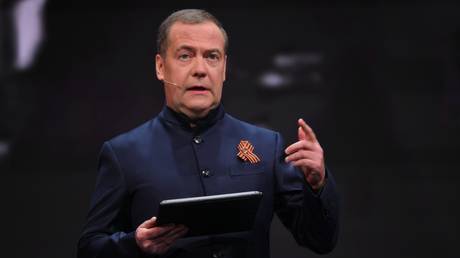 Trump’s WWII claim is ‘pompous nonsense’ – Medvedev
Trump’s WWII claim is ‘pompous nonsense’ – Medvedev
Trump’s claims that America played the leading role in defeating Nazi Germany sparked controversy. Former Russian President Dmitry Medvedev, who is now deputy chairman of his country’s Security Council, dismissed the remarks as “pretentious nonsense,” emphasizing the Soviet Union’s sacrifice of 27 million lives in the war.
General Lord Dannatt, former chief of the UK General Staff, called Trump’s remarks “extraordinary” and accused him of “rewriting history.”
Nazi Germany officially surrendered to the Allies on May 8, 1945, after Soviet forces captured Berlin. The surrender took effect after midnight Moscow time. While the US observes May 8 as Victory in Europe Day, Russia commemorates the occasion on May 9.
Kremlin spokesman Dmitry Peskov acknowledged Russia’s gratitude for US support during World War II but maintained that the Soviet Union would have defeated Nazi Germany without it. He noted that the Lend-Lease program provided valuable aid, such as vehicles, aircraft, ammunition, and tanks, which helped make a difficult task more manageable.
The Lend-Lease program was a US initiative that supplied Allied nations with military equipment, food, and raw materials. According to Peskov, the Soviet Union received aid valued at around $200 billion in today’s terms. However, the support wasn’t free. Russia, as the USSR’s successor, only completed repayment in 2006.
-
Site: AsiaNews.itFrom Bergamo, 60-year-old Cardinal Pierbattista Pizzaballa brings the 'Mother Church' back among the electors of a Pope for the first time in centuries. Living in Jerusalem for the past 35 years, the Franciscan friar has long been engaged in dialogue with both Judaism and Islam. He served for 12 years as Custos of the Holy Land. ...
-
Site: RT - News
A Paris court has ordered suspended prison terms and fines for the cyberbullying of Thomas Jolly, who staged the infamous Last Supper parody
Seven people have been sentenced in France for the cyberbullying of Thomas Jolly – the artistic director of the LGBTQ-themed opening ceremony of the Paris 2024 Olympics.
Last year’s games opened with a controversial spectacle that included what was perceived as a recreation of Leonardo DaVinci’s ‘Last Supper’ featuring drag queens, homosexuals, transsexuals and a pro-obesity activist in the role of Christ.
The show was condemned by Christians across the world, as well as Muslims, many of whom expressed their frustration on social media. Several days after the event, the production company behind the ceremony, Paname 2024, complained that its employees were getting harassed online and had received death threats.
Jolly, who has insisted that the scene was not inspired by the ‘Last Supper’, also filed a complaint claiming was the target of “homophobic and anti-semitic threats and insults.”
In October, French authorities arrested seven people, including one woman, who were accused of writing hateful messages targeting Jolly that included posts like “degenerate Jew,” “slut,” “God will not forget you” and “you will pay for having disrespected our Lord Jesus Christ.”
On Monday, the Paris Criminal Court found the seven individuals guilty of “repeated death threats, cyberbullying and aggravated insults based on sexual orientation or real or supposed religious affiliation” against Jolly.
The court imposed suspended fines of €2,000 to €3,000 ($2,260-$3,395) and suspended prison sentences of two to four months and ordered the defendants to pay one euro in damages to the artistic director.
Read more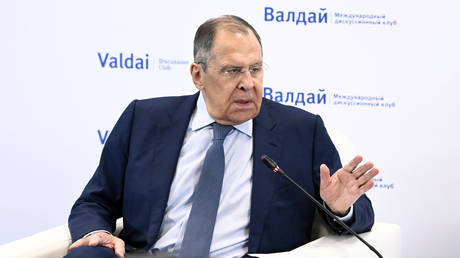 Russia’s rival to Eurovision will be free of ‘perversion’ – Lavrov
Russia’s rival to Eurovision will be free of ‘perversion’ – Lavrov
The seven defendants, aged between 22 and 79, will also have to complete a five-day citizenship course, the court ruled. The X accounts of two of the accused individuals will also be suspended for six months.
Their posts came amid a wave of backlash to the Olympic opening ceremony from the Christian world, with the Bishops’ Conference of France claiming that it “mocked and ridiculed” the faith. The Vatican also said it was “saddened” by the ceremony and that it offended many Christians and believers of other religions.
The Russian Orthodox Church stated at the time that the performance represented a “counterculture of godlessness” that has emerged in the center of Europe. The head of the church, Patriarch Kirill of Moscow, also said it was evidence of the “de-cultivation” of moral values and the “downward trajectory of the spiritual-cultural component of Western civilization.”
The outcry over the event ultimately forced the International Olympic Committee to apologize and delete the video of the opening ceremony from online streaming platforms.
-
Site: RT - News
A Paris court has ordered suspended prison terms and fines for the cyberbullying of Thomas Jolly, who staged the infamous Last Supper parody
Seven people have been sentenced in France for the cyberbullying of Thomas Jolly – the artistic director of the LGBTQ-themed opening ceremony of the Paris 2024 Olympics.
Last year’s games opened with a controversial spectacle that included what was perceived as a recreation of Leonardo DaVinci’s ‘Last Supper’ featuring drag queens, homosexuals, transsexuals and a pro-obesity activist in the role of Christ.
The show was condemned by Christians across the world, as well as Muslims, many of whom expressed their frustration on social media. Several days after the event, the production company behind the ceremony, Paname 2024, complained that its employees were getting harassed online and had received death threats.
Jolly, who has insisted that the scene was not inspired by the ‘Last Supper’, also filed a complaint claiming was the target of “homophobic and anti-semitic threats and insults.”
In October, French authorities arrested seven people, including one woman, who were accused of writing hateful messages targeting Jolly that included posts like “degenerate Jew,” “slut,” “God will not forget you” and “you will pay for having disrespected our Lord Jesus Christ.”
On Monday, the Paris Criminal Court found the seven individuals guilty of “repeated death threats, cyberbullying and aggravated insults based on sexual orientation or real or supposed religious affiliation” against Jolly.
The court imposed suspended fines of €2,000 to €3,000 ($2,260-$3,395) and suspended prison sentences of two to four months and ordered the defendants to pay one euro in damages to the artistic director.
Read more Russia’s rival to Eurovision will be free of ‘perversion’ – Lavrov
Russia’s rival to Eurovision will be free of ‘perversion’ – Lavrov
The seven defendants, aged between 22 and 79, will also have to complete a five-day citizenship course, the court ruled. The X accounts of two of the accused individuals will also be suspended for six months.
Their posts came amid a wave of backlash to the Olympic opening ceremony from the Christian world, with the Bishops’ Conference of France claiming that it “mocked and ridiculed” the faith. The Vatican also said it was “saddened” by the ceremony and that it offended many Christians and believers of other religions.
The Russian Orthodox Church stated at the time that the performance represented a “counterculture of godlessness” that has emerged in the center of Europe. The head of the church, Patriarch Kirill of Moscow, also said it was evidence of the “de-cultivation” of moral values and the “downward trajectory of the spiritual-cultural component of Western civilization.”
The outcry over the event ultimately forced the International Olympic Committee to apologize and delete the video of the opening ceremony from online streaming platforms.
-
Site: Zero HedgeFutures Slide On Latest Batch Of Disappointing EarningsTyler Durden Tue, 05/06/2025 - 08:31
US equity futures slumped for the second day, dragged down by earnings and a lack of positive news on trade negotiations. As of 8:00am, S&P 500 futures dropped 0.9% as risk is pared into tomorrow's Fed announcement and the index failed to breach through technical resistance; Ford slumped after suspending its guidance and warned tariffs will reduce 2025 adjusted EBIT by about $1.5 billion; Nasdaq futures 100 dropped 1.1%, with all Mag7 stocks lower as Tesla and Meta led declines. Palantir tumbled 8% after the software firm’s results failed to meet investors’ expectations, while Ford slipped 3% after the carmaker pulled its financial guidance and flagged a tariff impact of about $2.5 billion on 2025 earnings. German stocks tumbled Estoxx 50 after incoming German chancellor Friedrich Merz suffered a shock setback when he fell short of a majority in an initial vote in the lower house of parliament to confirm him as Germany’s next chancellor. The yield curve is twisting steeper as USD comes for sale. Commodities are higher with WTI crude oil futures rebounding more than 2% from Monday’s YTD low close and gold is marching back to its ATHs. Trade Balance data is the macro data focus.
In premarket trading, Ford slips 2% as the automaker suspended its full-year financial guidance and said President Trump’s tariffs will take a toll on profit, joining rivals stung by volatile global trade policies. Palantir Technologies dropped 7% after the data-analysis software company posted financial results failed to meet investors’ expectations. Magnificent Seven stocks were all in the red: Tesla slips 1.6% as sales kept sliding across Europe’s biggest electric-car markets in April, despite the company rolling out an updated version of its most popular vehicle (Amazon -0.9%, Nvidia -1.4%, Meta -1.2%, Microsoft -0.7%, Apple -0.4%, Alphabet -0.8%). Here are the other notable premarket movers:
- Celsius Holdings (CELH) falls about 4% after the energy-drink maker reported first-quarter revenue and adjusted EPS that trailed Wall Street expectations.
- Constellation Energy (CEG) drops 6% after the power producer reported adjusted profit and Ebitda for the first quarter that fell short of expectations.
- Datadog (DDOG) climbs 2% as the software company forecast revenue for the second quarter, guidance that beat the average analyst estimate.
- DoorDash (DASH) falls 3% as the company is buying SevenRooms for $1.2 billion and Deliveroo for $3.9 billion, expanding its global reach and services.
- Fabrinet (FN) drops 6% as the maker of optical communications products posted a sequential decline in datacom revenue.
- Hims & Hers Health (HIMS) slumps 6% after the telehealth company gave guidance for second-quarter revenue that fell short of expectations. The firm also maintained its full-year sales outlook and Piper Sandler sees a lack of upside in the guidance.
- Ichor (ICHR) drops 15% after the maker of fluid delivery subsystems for semiconductor capital equipment posted disappointing gross margins.
- SolarEdge (SEDG) rises 13% after the solar equipment maker forecast revenue for the 2Q that beat the average analyst estimate.
- Vertex Pharmaceuticals (VRTX) falls 5% after the company reported adjusted earnings per share for the first quarter that missed expectations.
- WeRide Inc.’s US-listed shares (WRD) rise 12% after news that Uber Technologies is expanding its autonomous-vehicle partnership with the China-based firm to 15 more cities globally, including in Europe.
In Europe, the Stoxx 600 benchmark snapped a 10-day run of gains to drop 0.6%, its losses accelerating after incoming German chancellor Friedrich Merz failed suffered a shock setback when he fell short of a majority in a parliamentary vote to confirm him as Germany’s next chancellor, preventing his swearing in on Tuesday and pitching Europe’s biggest economy into uncharted territory. While the conservative leader is still expected to take charge of a ruling coalition of his CDU/CSU bloc and the Social Democrats, it was the first time since World War II that an incoming chancellor failed to secure backing from lawmakers in the first round of voting in the Bundestag and triggered chaos in Berlin’s government quarter. Meanwhile, European companies such as Royal Philips NV and Vestas Wind Systems A/S warned of uncertainty fueled by President Donald Trump’s trade tariffs; mining and industrial goods shares leading declines, while food beverage and energy stocks are the biggest outperformers. Here are the biggest movers Tuesday:
- Fresenius Medical Care shares gain as much as 6%, to the highest since July 2023, after the kidney dialysis company reported results for the first quarter which some analysts said were better than expected
- Vestas shares gain as much as 8.3% on Tuesday after it reported a first quarter orders beat and maintained guidance amid tariff uncertainty, which analysts welcomed
- ALK-Abello shares advance as much as 5.7%, to the highest since Nov. 14, after the Danish allergy drugmaker reported better-than-expected revenue for the first quarter
- Continental shares rise as much as 4.7% after the German firm more than doubled earnings in the first quarter as its car-parts unit slashed costs and tire sales bounced back from weaker levels last year
- Hugo Boss’s shares rise as much as 10% after the suit maker’s earnings beat estimates, which analysts said was a relief, especially against a tough backdrop
- Redcare Pharmacy shares fall as much as 9% after first-quarter results from the German online pharmacy provided little in the way of fresh catalysts to sustain a four-day winning streak
- Castellum shares slumped as much as 8.6%, the worst performing stock on the Stoxx 600 Real Estate Index, after the Swedish landlord reported 1Q revenue that missed the average analyst estimate
- Coloplast shares fall as much as 6.2%, to the lowest since February 2019, after the medical-products maker said CEO Kristian Villumsen stepped down from his role on May 5, with Lars Rasmussen becoming interim CEO
- Elis drops as much as 5% despite maintaining its full-year guidance, with analysts expecting little change to current consensus. The French cleaning services group said tariffs aren’t expected to have any direct impact
- Philips shares slip as much as 4% in early trading after the Dutch medical-technology firm cut its profitability outlook for the year, to take into account the estimated impact of tariffs
- TeamViewer shares slide as much as 10% after reporting results that included various accounting adjustments as well as new acquisition 1E
- Evotec shares fall as much as 9.6% as analysts point out the pharmaceutical firm’s results contained a miss in the research and development division and an increase in net debt
The slide in futures suggest that a recent burst of optimism fueled by some US trade concessions may already be fading. On Monday, the S&P 500 halted a nine-day rally that was its longest in about 20 years. While Ford’s warning served as a reminder that damage from the tariff war will become evident over the coming months, a run of firm economic data in recent days has caused traders to dial back bets on Federal Reserve interest-rate cuts.
“For us, it’s not the moment to add on risk,” said Nicolas Sopel, a strategist at Quintet Private Bank. “Even if there are successful negotiations between the US and China, tariffs will most likely be a lot higher than they were before Trump came into power. We will need time to see how deeply these increases impact the US economy,” according to Sopel, who has reduced US equity exposure.
Meanwhile, investors are coming around to the view that the Fed won’t cut interest rates as early or as deeply as earlier anticipated. While it’s expected to leave interest rates on hold this week, money markets have pushed back the timing of the first reduction to July and see three cuts by year-end, rather than the four they had expected a week ago.
“Recent comments from Fed Chair Powell suggest that the Fed will remain in wait-and-see mode over the near term,” Michael Krautzberger, AllianzGI’s chief investment office for fixed income, told clients. He also sees headwinds to the US dollar, and maintains “a short dollar footprint” in portfolios, he added.
Financial leaders at the Milken Institute Global Conference in Beverly Hills said they can live with tariffs and a reworking of trade, but want progress and an end to the chaos soon.
Meanwhile, the Bank of England is set to cut rates this week and may even pave the way for a series of back-to-back reductions in response to the trade war. The European Central Bank will also cut rates further, Governing Council member Yannis Stournaras, said.
Earlier in the session, Asian stocks advanced, as mainland Chinese shares rose on resilient holiday spending data and signs of easing trade tensions with the US. The MSCI Asia Pacific Ex-Japan Index gained as much as 0.7% before paring earlier gains. Communication services and consumer discretionary were among the best performing sectors.
Chinese stocks outperformed in the region, as investors’ mood was lifted by strong retail sales and robust airline traffic results during the Labor Day holiday in early May. Traders also dialed up bets on easing tensions after Treasury Secretary Scott Bessent said the US could see “substantial progress in the coming weeks” in trade talks with China. The benchmark CSI 300 Index gained 1% on Tuesday. Hong Kong’s Hang Seng Index rose 0.7In FX, the Bloomberg’s dollar index steadied after two days of losses, as the news on Merz weighed on the euro. However, the greenback is down nearly 7% this year and data shows traders have been adding to bearish bets. The fallout is being felt worldwide, with wild swings in recent days across Asian currencies, while Hong Kong has ramped up sales of its local currency to protect its foreign-exchange peg. China’s central bank kept the yuan’s daily reference rate little changed at 7.2008 per dollar as local markets reopened on Tuesday; the Taiwan dollar fell after gaining for six straight sessions
In rates, treasuries are mixed, with outperformance at the shorter-end of the curve. US 10-year yields rise 2 bps to 4.36% while two-year yields fall 1 bp; the front-end outperformance has 2s10s spread about 2bp wider on the day, off session highs reached during London morning. Bunds and gilts lag by 1bp and 2.5bp in the sector. The Treasury auction cycle continues with $42 billion 10-year new issue, following good demand for Monday’s 3-year note sale; WI 10-year yield near 4.355% is ~8bp richer than last month’s, which stopped through by 3bp; a $25b 30-year new issue Thursday will complete the cycle
In commodities, oil prices jump, with WTI rising 2.9% to $58.80 a barrel. Spot gold rises $40 to around $3,375/oz. Bitcoin is flat just above $94,000.
Looking at the US calendar, data releases will include US March trade balance data, the final April services and composite PMIs in the Eurozone, as well as March Eurozone PPI and France industrial production. The ECB’s Panetta is due to speak, while earnings releases include AMD, Arista Networks, Ferrari, Constellation Energy and Rivian.
Market Snapshot
- S&P 500 mini -0.8%
- Nasdaq 100 mini -1.1%
- Russell 2000 mini -1.1%
- Stoxx Europe 600 -0.9%
- DAX -2%
- CAC 40 -0.8%
- 10-year Treasury yield +1 basis point at 4.35%
- VIX +1 points at 24.67
- Bloomberg Dollar Index little changed at 1220.76
- euro +0.2% at $1.1337
- WTI crude +1.9% at $58.19/barrel
Top Overnight News
- Friedrich Merz fell short of a majority in an initial vote in parliament to confirm him as Germany’s next chancellor, delaying his swearing-in for at least one day and prompting the anti-immigrant AfD to call for new elections. German bunds pared a decline. BBG
- President Donald Trump on Monday signed an executive order to incentivize prescription drug manufacturing in the U.S., streamlining the path for pharmaceutical companies to build new production sites stateside as potential tariffs on imported medicines loom. CNBC
- The Trump administration blocked Harvard from new research grants from the federal government. Access to the funding, worth over $1 billion a year, won’t be possible until the university shows “responsible management,” Education Secretary Linda McMahon said. BBG
- US House Speaker Johnson said House Republicans remained on pace to pass the Trump agenda by Memorial Day or shortly thereafter and stated the Trump agenda is not facing a setback in the US House.
- US Defense Secretary Hegseth ordered a reduction in 4-star positions in the military, according to a US official.
- China’s Caixin services PMI came in a bit below expectations at 50.7 (vs. the Street 51.8) and per capita consumer spending over the May Day holiday was muted. RTRS
- Chinese manufacturers are attempting to avoid the Trump administrations tariffs by fraudulently undervaluing cargo sent to the US, exploiting a system the American authorities have struggled to police. FT
- Taiwanese central bank says 80% of FX reserves are US bonds. Taiwan Central Bank FX official says they feel the market has returned to a more stable situation today.
- Hong Kong's de-facto central bank said it sold HK$46.54 billion ($6 billion) into the market on Saturday to prevent the local currency from strengthening beyond its official peg to the U.S. dollar, the first such intervention in more than four years. RTRS
- HKMA says has been lowering its duration in US treasury holdings; exchange fund has been diversifying into non-US assets Has been diversifying currency exposure in its investment portfolio to manage risks.
- The PBOC set the daily yuan reference rate only marginally stronger than on Thursday, sidestepping the offshore yuan’s sizable appreciation during the long weekend. That effectively forces the offshore currency to give up recent gains, MLIV wrote. BBG
- Spain’s blackout resulted in a €400 million loss to the economy. BBG
- The US trade deficit probably widened in March as firms boosted imports again to front-load products ahead of tariffs. BBG
A more detailed look at global markets courtesy of Newsquawk
APAC stocks were mostly higher as Chinese participants returned from the Labor Day holiday but with the gains capped following disappointing Chinese Caixin Services PMI data and as markets in Japan and South Korea remained closed. ASX 200 traded little changed as strength in the commodity-related sectors were predominantly offset by underperformance in financials and defensives, while the larger-than-expected contraction in building approvals clouded over risk appetite. Hang Seng and Shanghai Comp gained on return from the extended weekend and took their opportunity to react to the recent China tariff rhetoric from US President Trump who said that he is willing to lower tariffs on China at some point, while the miss on Caixin Services PMI data did little to derail the positive sentiment in China.
Top Asian News
- Chinese President Xi is prepared to work with EU leaders to expand mutual openness and properly handle frictions and differences, according to Xinhua Calls on the EU and China to safeguard fairness and justice.
- China said 314mln domestic trips were made during the May holiday which was up 6.4% Y/Y and travel expenditure of domestic tourists rose 8% Y/Y to 180.3bln, according to CCTV.
- US House intensified its legislative push against Beijing on Monday in which it advanced a slate of China-related bills targeting industrial espionage, export controls, national security threats and alleged human rights abuses.
- Fast fashion platforms Shein and Temu boosted digital advertising in Europe with the most growth seen in France and the UK, while they see increased app downloads in France and the UK as US tariffs hit and Shein also boosted advertising in Brazil where it manufactures goods for Latin America.
- HKMA intervened in which it bought USD 7.8bln against the HKD at 7.7500 after the HKD hit the strong end of the trading range.
European bourses (STOXX 600 -0.6%) opened mostly firmer/flat and traded tentatively on either side of the unchanged mark. Thereafter, the risk tone soon slipped after the HKMA said it says has been lowering its duration in US treasury holdings and as Germany's Merz failed to secure enough votes to become Chancellor; DAX 40 -1.8%. The HKMA update sparked some modest pressure in US equity futures (ES -0.9%, NQ -1%); ahead of a handful of earnings and meetings between the US and Canadian Presidents. As for sectors, its a mixed picture in Europe. Food Beverage & Tobacco takes the top spot, joined closely by Utilities. To the downside, Basic Resources sits right at the foot of the pile – losses largely driven by Anglo American after Peabody said it may terminate its deal for its coal mine assets. For the Pharma industry; US President Trump said he will announce pharmaceutical tariffs over the next two weeks, while he signed an order to reduce regulatory barriers to domestic pharmaceutical manufacturing and will have an announcement next week related to the cost of medicines.
Top European News
- Germany's CDU leader Merz falls short of a majority needed to become Chancellor in first round of voting in parliament; secured 310 Bundestag votes, 316/630 required. On the second round of voting for German Chancellor Merz, Handelsblatt citing sources reports "The second round of voting could be postponed until Friday because the approval of the AfD is necessary for an immediate ballot". There will not be a second vote on Merz becoming German Chancellor today, via Handelsblatt citing numerous reports and the CDU Secretary General.
- EU is set to make it easier for UK professionals to work in the bloc, according to FT.
- SNB Chairman Schlegel says is committed to its price stability mandate; biggest challenge at present is uncertainty. Ready to intervene in the FX market as necessary. Swiss inflation is expected to come down. Not ruled out negative rates. Nobody likes negative rates but if have to, are prepared to do it again.
FX
- After an attempted recovery last week, the USD has continued to ebb lower after DXY failed to sustain a move above the 100 mark, despite a solid showing for US ISM services. HKMA said it has been lowering its duration in US treasury holdings and has been diversifying into non-US assets. DXY is currently towards the lower end of Monday's 99.46-100.05 range.
- EUR is firmer vs. the broadly weaker USD as Eurozone-specific newsflow remains on the light side. ECB-dove Stournaras noted he does not see inflation if the EU tariff reaction is selective and it seems the ECB will continue with rate cuts. EUR/USD has gained a firmer footing on a 1.13 handle but is yet to approach Monday's high at 1.1364 with some of the upward momentum for the currency stalled in recent trade after Germany's CDU leader Merz fell short of a majority needed to become Chancellor in the first round of voting in parliament.
- USD/JPY traded indecisively overnight and failed to sustain a brief return to the 144.00 level with price action largely driven by the dollar amid the continued absence of Japanese participants. In European trade, downside was seen for the pair as global equity futures ebbed lower. USD/JPY has delved as low as 142.91 with the next target coming via the 1st May low at 142.88.
- GBP is mildly firmer vs. the USD as UK participants return to market. UK newsflow remains light with markets looking ahead to Thursday's BoE policy announcement. Cable has ventured as high as 1.3333 but is yet to test yesterday's 1.3336 peak.
- Diverging fortunes for the antipodeans with AUD towards the bottom-end of the G10 leaderboard. Overnight trade saw a larger-than-expected contraction in Australian building approvals and a disappointing Chinese services PMI. However, the cause for underperformance vs. NZD is otherwise unclear.
- PBoC set USD/CNY mid-point at 7.2008 vs exp. 7.2518 (Prev. 7.2014).
Fixed Income
- USTs are holding around the unchanged mark in a 110-27+ to 111-03 band. Came under modest pressure overnight on the return of China and generally supportive tone, despite weak Chinese PMI; though, once again, Japan was on holiday and as such conditions were thinner than normal with no cash trade. Into the European morning, USTs began to pick up alongside fixed income generally amidst commentary from the HKMA that they are diversifying into non-US assets. The update had more of an impact on US equity futures and the DXY than it did on Treasuries. Ahead, supply is the main scheduled event stateside in the form of a 10yr tap. Follows Monday’s 3yr sale which was much better than the prior.
- Bunds were initially under pressure in-fitting with the bias from USTs overnight. Thereafter, the benchmark began to lift off lows and was largely unaffected by modest upward revisions to Final PMIs for April. More recently, Bunds jumped by almost 30 ticks to breach the 131.00 mark as Germany's CDU/CSU leader Merz fell just six votes short of a Bundestag majority in the vote to appoint him as Chancellor. Upside in Bunds comes as Merz not securing a majority presents risks to his Chancellorship, the CDU/CSU-SPD coalition and possibly the implementation of recent fiscal reform. The upside has now almost entirely been pared, from 131.08 to current 130.88, potentially as traders await clarity on the timing of the next vote; as it stands, it looks unlikely to occur today, but could be as soon as Wednesday.
- Gilts are the clear underperformer in catch-up play from Monday’s UK Bank Holiday. Gapped lower by 29 ticks at 92.88, the session high, before slipping to a 92.32 base in short order. Currently holding just off that low but in close proximity to it. PMIs for April were subject to modest upward revisions, but in-fitting with EGBs spurred no real reaction in the benchmark.
- Germany sells EUR 3.48bln vs exp. EUR 4.5bln 2.40% 2030 Bobl: b/c 1.2x (prev. 1.40x), average yield 2.07% (prev. 2.06%) & retention 22.67% (prev. 21.1%).
Commodities
- Firm gains across the crude complex, with prices rebounding from the earlier OPEC-induced downside, with most of Asia also returning to the market from the long weekend. The upside could be at least partially attributed to the geopolitical developments yesterday, in which Israel expanded its Gaza operation and suggested that it plans to occupy the territory, marking a major escalation from its initial plans of destroying Hamas and its capabilities. WTI resides in a USD 57.03-58.52/bbl range while Brent sits in a USD 60.18-61.64/bbl parameter.
- Precious metals are higher across the board amid a softer Dollar, the return of APAC players, ongoing tariff woes, and escalating geopolitics. Spot gold has almost reversed the losses seen during the final week of April with the yellow metal current in a USD 3,322.75-3,387.02/oz parameter as it eyes USD 3,400/oz to the upside.
- The base metals complex ekes mild gains with the aid of a softer Dollar and alongside the return of some demand as most APAC markets returned from their long weekend. 3M LME copper has waned off best levels but resides around the middle of a USD 9,366.50-9,487.53/t intraday band.
- European Commission is to make a legal proposal to ban Russian gas and LNG imports by end-2027 and ban new Russian gas deals and existing spot contracts by end-2025; plans will be announced on Tuesday, legal proposals due in June, via an EU official.
- EU Commission will present a legal proposal in June to ban all imports under Russian gas deals and existing spot contracts by end-2025, via Reuters citing a Commission document In June, will present trade measures aimed at making imports of Russian enriched Uranium economically less viable.
Geopolitics: Middle East
- Palestinian media reported that the Israeli army blew up residential buildings east of Gaza City.
- "Israeli army: Our forces are deployed in southern Syria and are in a state of readiness to prevent the entry of any hostile forces into the area or to Druze villages", according to Sky News Arabia.
- "Hamas: The Israeli occupation's approval of plans to expand its operation in the Gaza Strip is an explicit decision to sacrifice Israeli prisoners", according to Al Jazeera.
- Israeli National Unity chairman Benny Gantz says "We must be ready and have the ability to attack Iran's nuclear facilities", via Sky News Arabia
Geopolitics: Ukraine
- Ukraine attack damaged a power substation in Russia's Kursk region, according to the regional governor.
- Russian defence units destroyed five Ukrainian drones flying towards Moscow and Russia's aviation watchdog announced flights were halted at Moscow's major airports following reports of drones, but later announced that airports reopened.
US Event Calendar
- 8:30 am: Mar Trade Balance $140.5b, est. -137.15b, prior -122.66b
DB's Jim Reid concludes the overnight wrap
As those of us in the UK were enjoying a wet, cold and windy bank holiday yesterday, just 4 days after record temperatures, the strong market recovery of the past two weeks ran out of steam, with the S&P 500 (-0.64%) declining for the first time in ten sessions, while 30yr Treasury yields (+4.5bps) rose for a fourth session running. These moves came amid a more cautious tone on the trade risks that Peter Sidorov had mentioned here yesterday, while still solid US economic data saw investors pare back expectations of near-term Fed cuts ahead of Wednesday’s FOMC meeting.
A sense that the tariff relief trade was losing momentum came amid little concrete progress on trade talks as well as Trump’s post late on Sunday calling for 100% tariffs on movies produced outside the US. While there are no details yet on how the latter plan would be implemented, it marked the administration’s first foray into tariffs on services. Later on Monday, Trump also said that pharma tariffs would be announced over the next two weeks.This backdrop saw the S&P 500 (-0.64%) end its longest winning run since 2004 that had seen the index rise by +10.25% over the previous nine sessions to end last week above its pre-Liberation Day levels. Underperformance by tech stocks saw the Mag-7 decline by -0.99%, while Netflix fell -1.94% after Trump’s movie tariff comments. After the close, the latest earnings releases saw Ford suspend its full-year financial guidance as it warned that auto tariffs will weigh on profits. And Palantir, which has been strongest advancer in the S&P 500 so far this year, saw its shares fell more than -9% in after-market trading as the software platform maker’s projected revenue growth fell shy of very lofty expectations. S&P 500 (-0.25%) and NASDAQ 100 (-0.45%) futures are edging lower as I type.
Yesterday’s reversal in equities came despite a decent ISM services release for April that pointed to a still resilient US economy and followed a solid payrolls print last Friday. The headline index unexpectedly rose from 50.8 to 51.6 (vs. 50.2 expected), with new orders rising to a 4-month high of 52.3. The ISM survey also pointed to elevated price pressures, with the prices paid index rising to 65.1, its highest level since January 2023.
The stronger data saw markets pare back their expectations of near-term Fed rate cuts. Notably, only 23bps of cuts are now priced by the July meeting, which is the first time since late February that the next cut is less than fully priced by July. The amount of cuts priced by year-end fell by -4.0bps to 76bps. Treasury yields moved higher, especially at the long end, with the 10yr up +3.5bps to 4.345% and the 30yr up +4.6bps to 4.835%. An +18.2bps rise in 10yr yields over the past three sessions may place some extra attention on today’s 10yr auction. There has been no trading overnight due to a Japanese holiday.
Those moves come ahead of tomorrow’s Fed decision, where our US economists expect the FOMC to keep rates steady and avoid explicit forward guidance about the policy path ahead. They continue to see the next rate cut coming in December and while risks are tilted towards earlier easing, in their view this would require a clear weakening of the labour market. See our economists’ full preview here. Central banks will also be in focus in Europe this week, with policy decisions from the UK, Norway and Sweden all due on Thursday. Our UK economist expects the BoE to deliver a 25bp cut (see preview here), while Norges and Riksbank are expected to keep rates on hold.
In Europe, while the UK was off for the May bank holiday, it was a more positive session, with the STOXX 600 (+0.16%) posting a tenth consecutive advance, the longest such run since 2021. The DAX (+1.12%) outperformed, moving to within half a percent of its all-time closing high on March 6. Italy’s FTSEMIB (+0.39%) and Spain’s IBEX (+0.55%) also gained but France’s CAC fell back (-0.55%).
European bonds saw muted moves, with the yields on 10yr bunds (-1.6bps), OATs (-1.3bps) and BTPs (-3.4bps) all seeing modest declines. The ECB’s Stournaras said “it seems we will continue” with rate cuts, but that amid the high uncertainty “you don’t take big steps or make big promises”.
In the commodity space, oil prices fell to their lowest level in four years following the OPEC+ agreement over the weekend to deliver another sizeable production increase in June which added to concerns of an oversupplied market. Brent crude fell by -1.73% to $60.23/bbl, its sixth consecutive daily decline of more than 1%, though it partially recovered after opening as low as $58.50/bbl in Asia yesterday. Meanwhile, gold rebounded by +2.89% on Monday to $3,334/oz, erasing last week’s -2.39% decline.
Asian equity markets are gaining this morning in thin trading with markets in Japan and South Korea remaining shut for public holidays. Chinese markets are ticking higher after resuming trading following the Labour-day holidays on signs of renewed momentum in trade negotiations between the world’s two largest economies. As I type, the CSI (+0.95%), Shanghai Composite (+0.94%), and the Hang Seng (+0.69%) are leading the way while the S&P/ASX 200 (+0.11%) is lagging a touch.
In FX, the Taiwanese dollar is retreating a touch this morning following an epic two-day rally that saw it at a near three-year high of 29.606 on Monday. The currency's appreciation was influenced, in part, by speculation surrounding a possible US trade deal that could necessitate Taiwan strengthening its currency. However, both Taiwan's central bank and the Cabinet's Office of Trade Negotiations have denied that the US has requested currency appreciation or that the issue is even part of trade talks.
Coming back to China, services sector growth slowed significantly in April, reaching a seven-month low. The Caixin services PMI dropped to 50.7 from 51.9 in March, and 51.8 expected, reflecting weaker new orders and uncertainty stemming from US tariffs.
To the day ahead, data releases will include US March trade balance data, the final April services and composite PMIs in the Eurozone, as well as March Eurozone PPI and France industrial production. The ECB’s Panetta is due to speak, while earnings releases include AMD, Arista Networks, Ferrari, Constellation Energy and Rivian.
-
Site: AsiaNews.itThe interim government commission led by Yunus is drafting laws to promote 'equal opportunities' in inheritance, labor, and family matters. For fundamentalists, these proposals 'hurt religious sentiments.' The fight for rights continues among political parties and civil society, against the backdrop of former Prime Minister Khaleda Zia's return to the country.
-
Site: The Remnant Newspaper



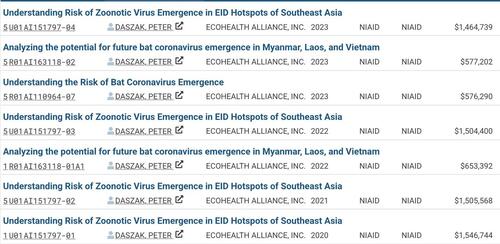
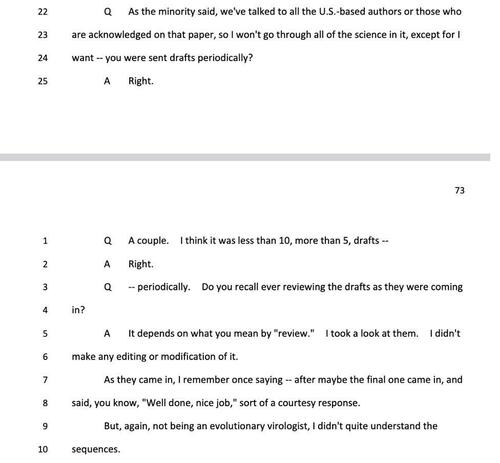
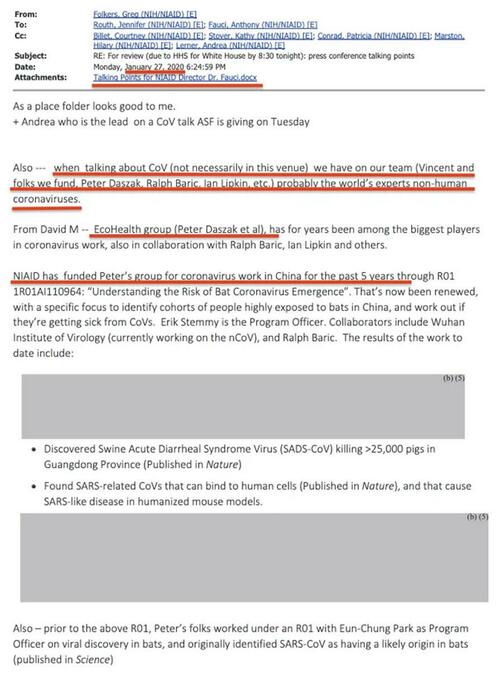

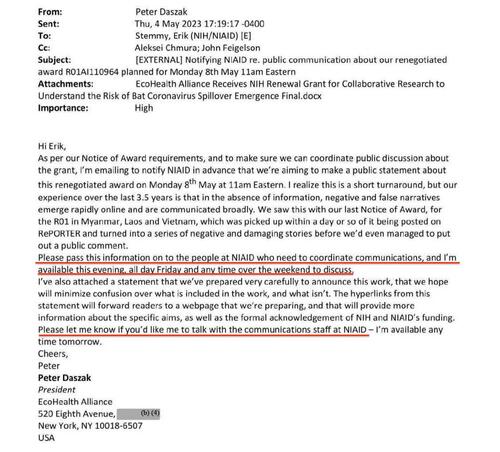

.jpg)
